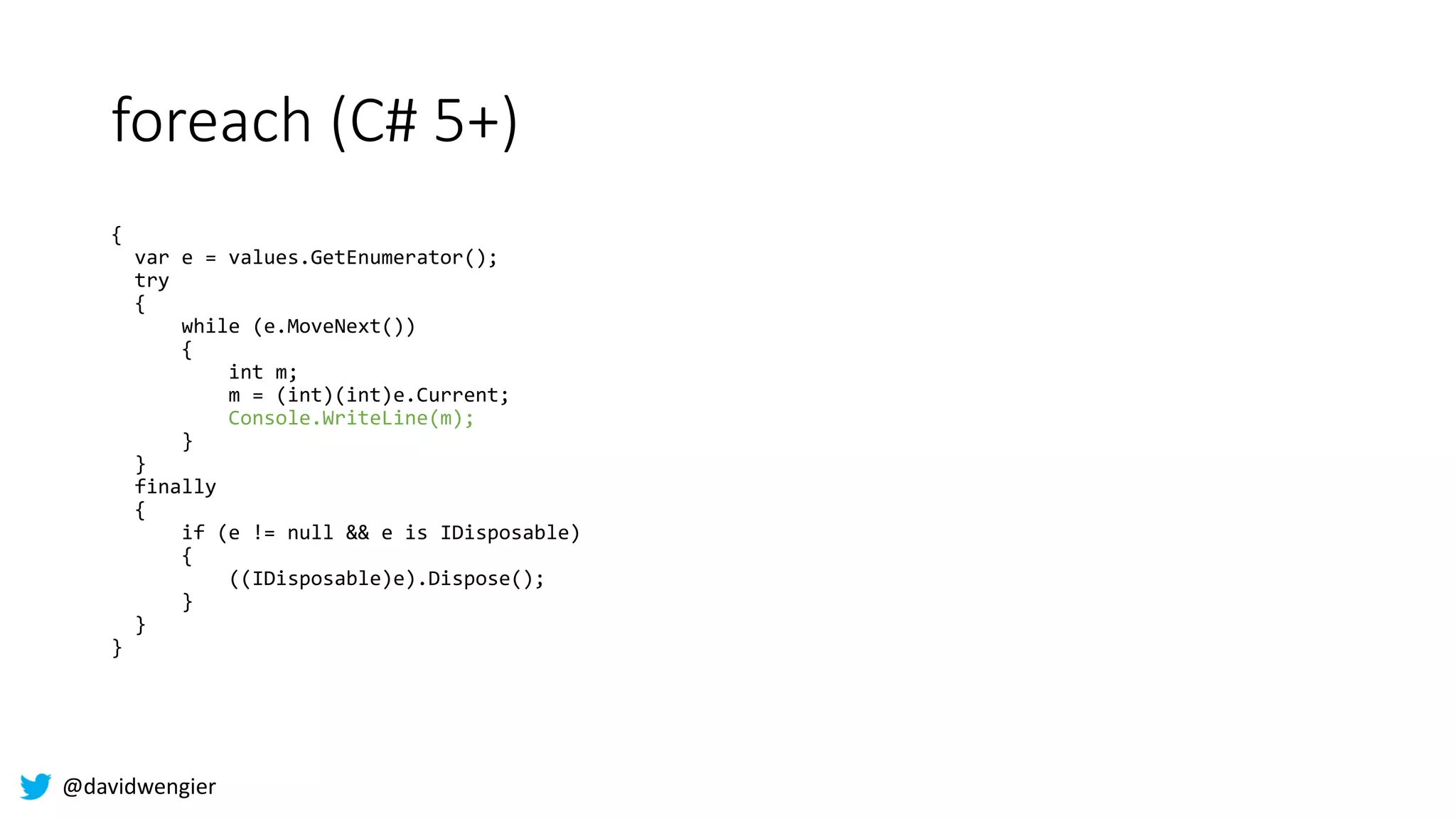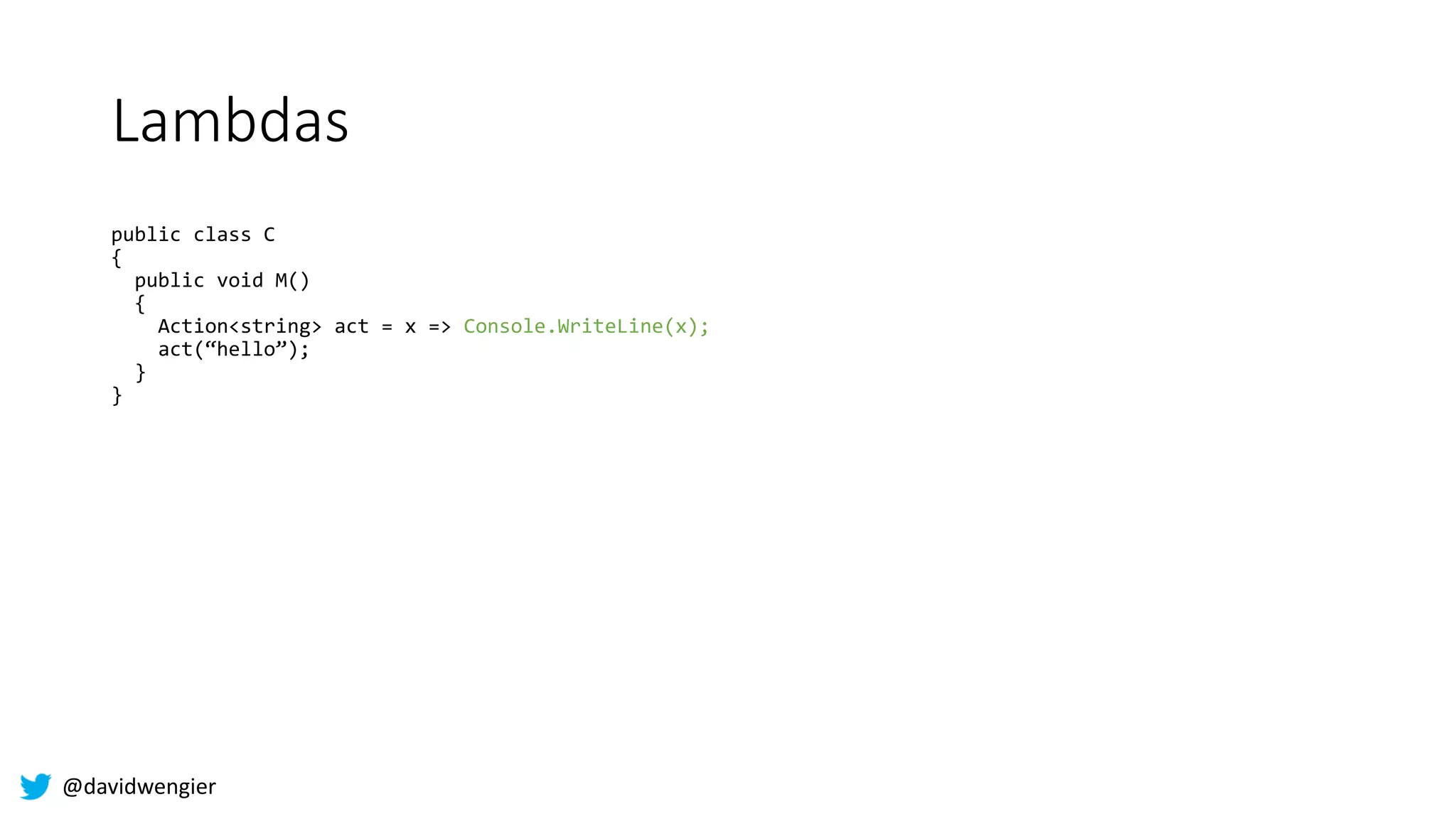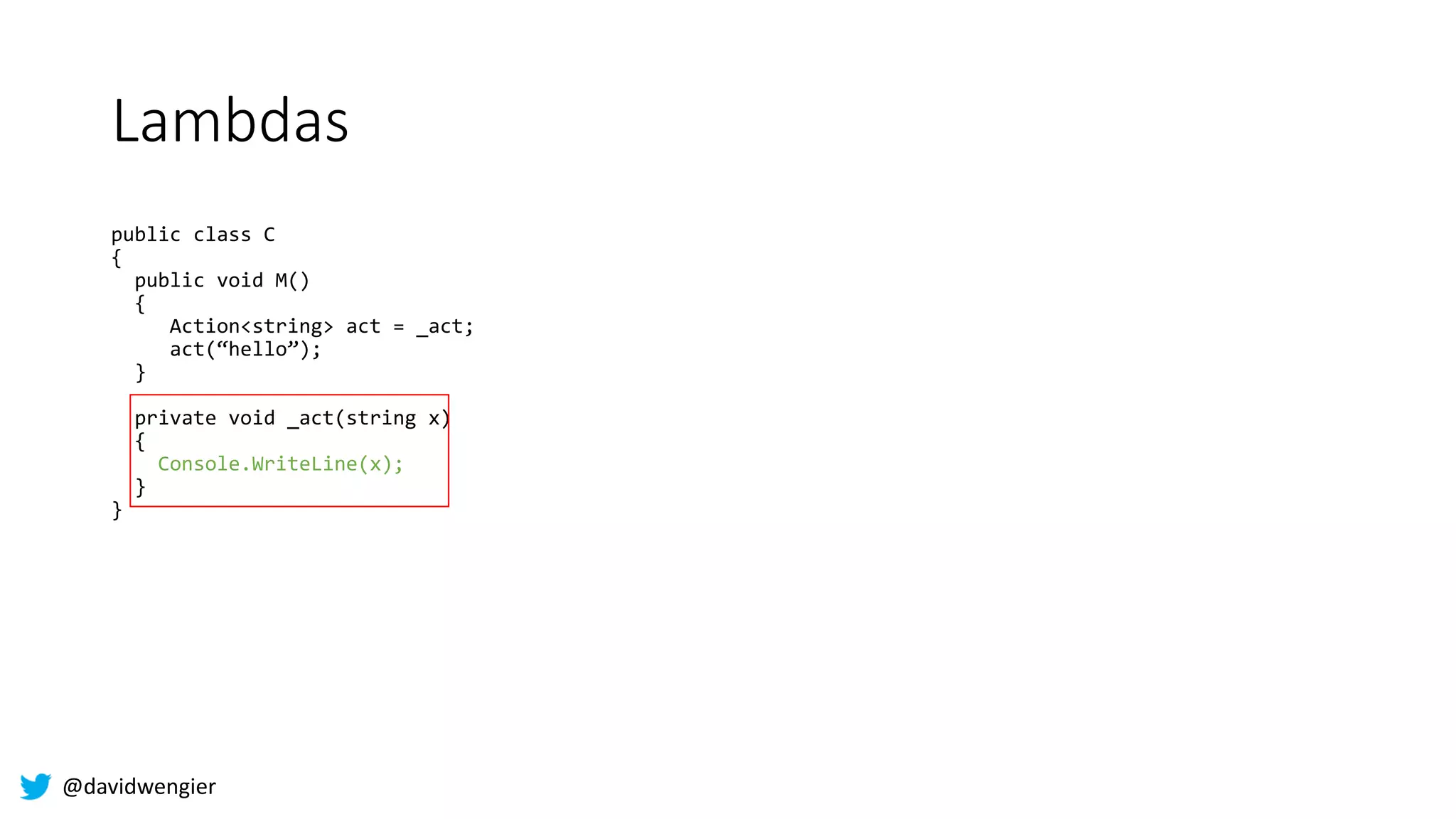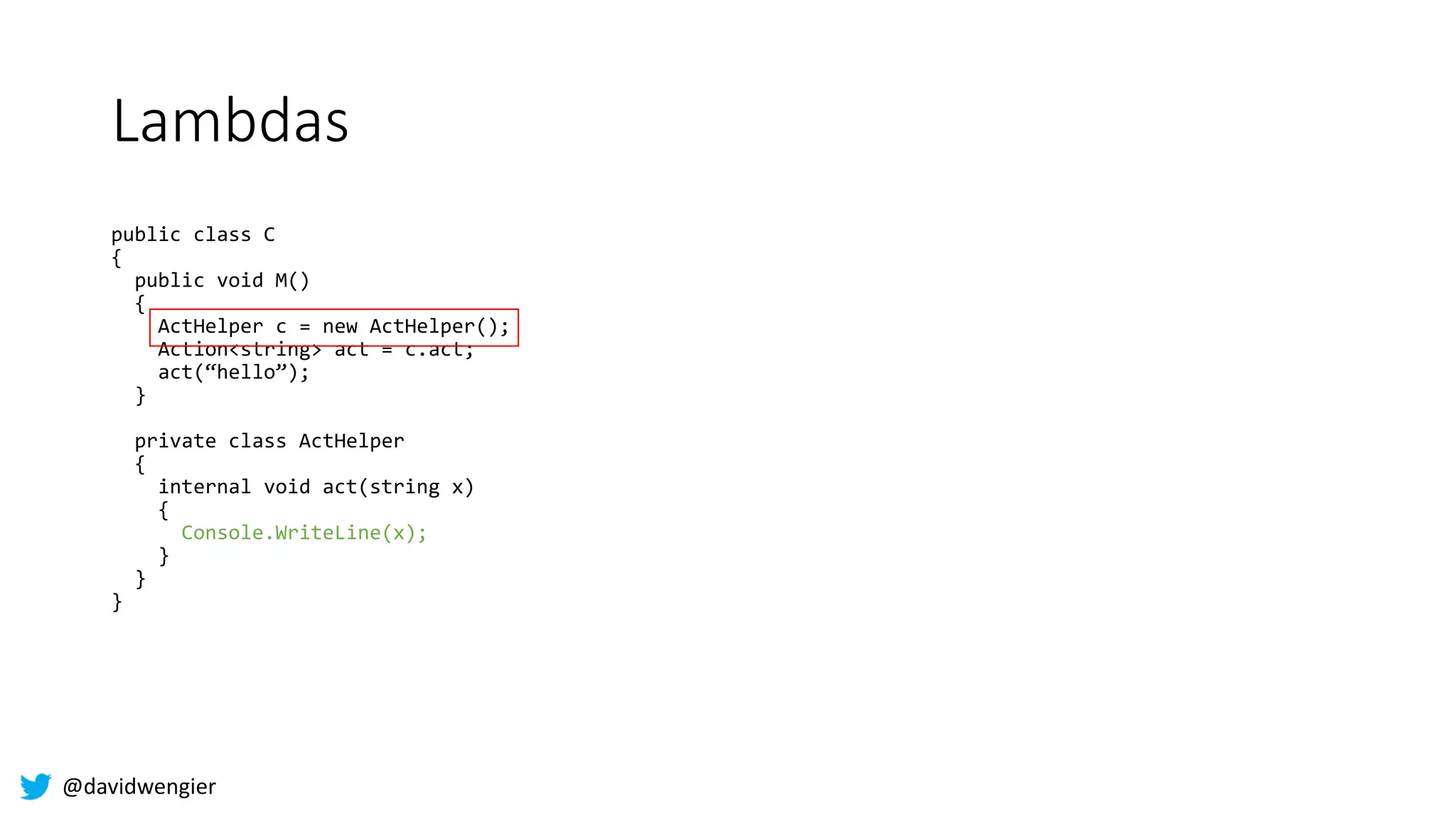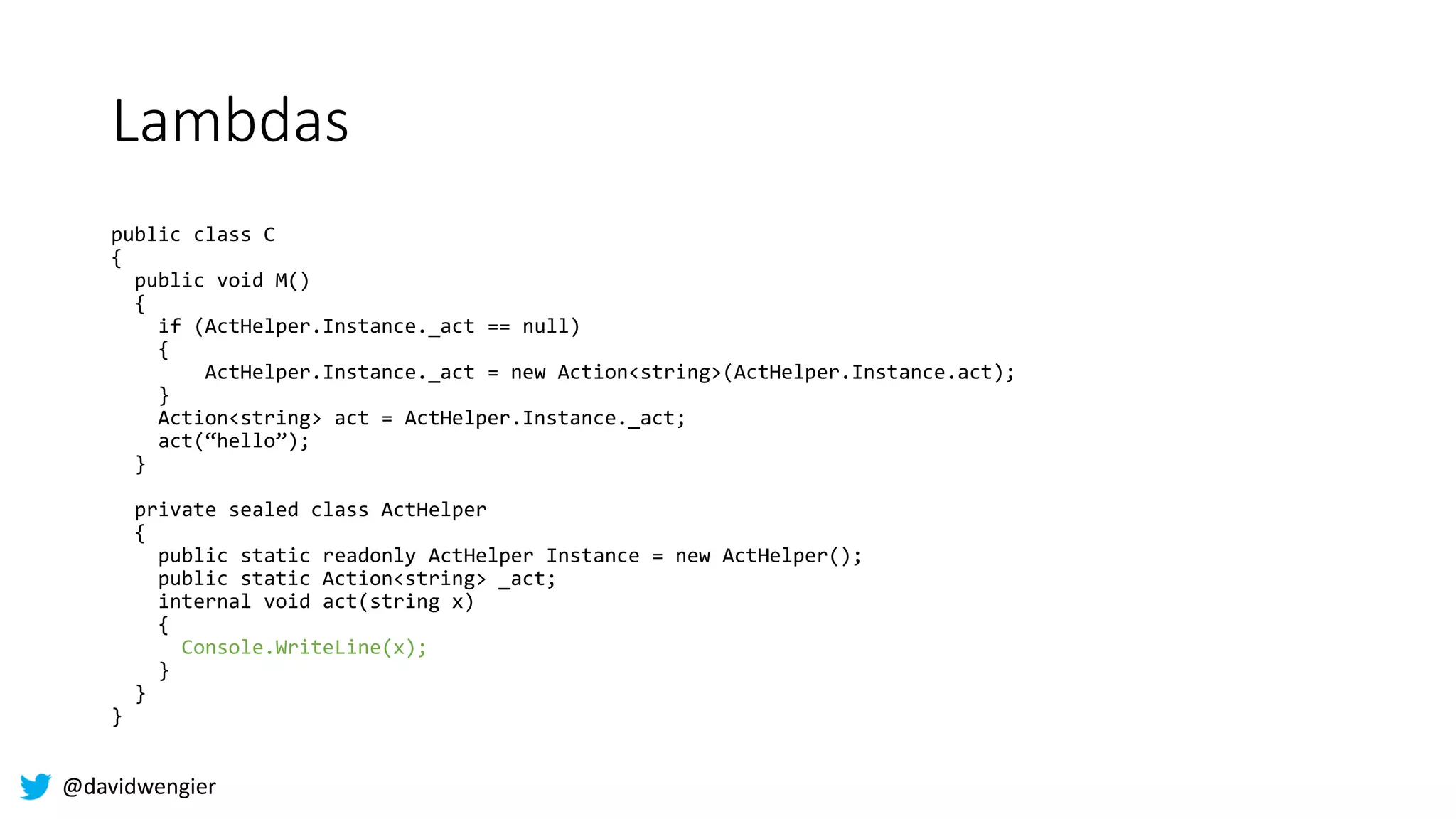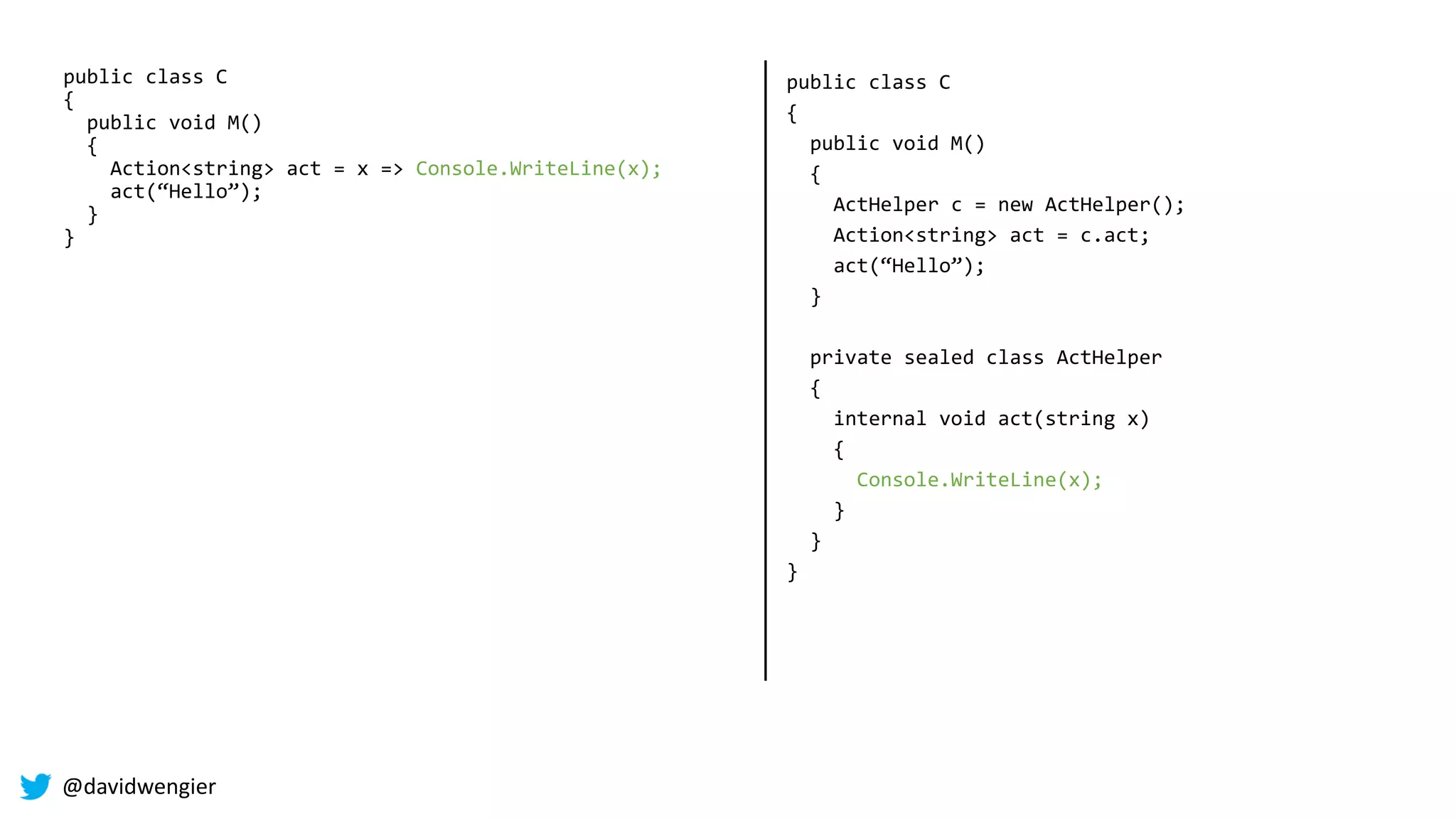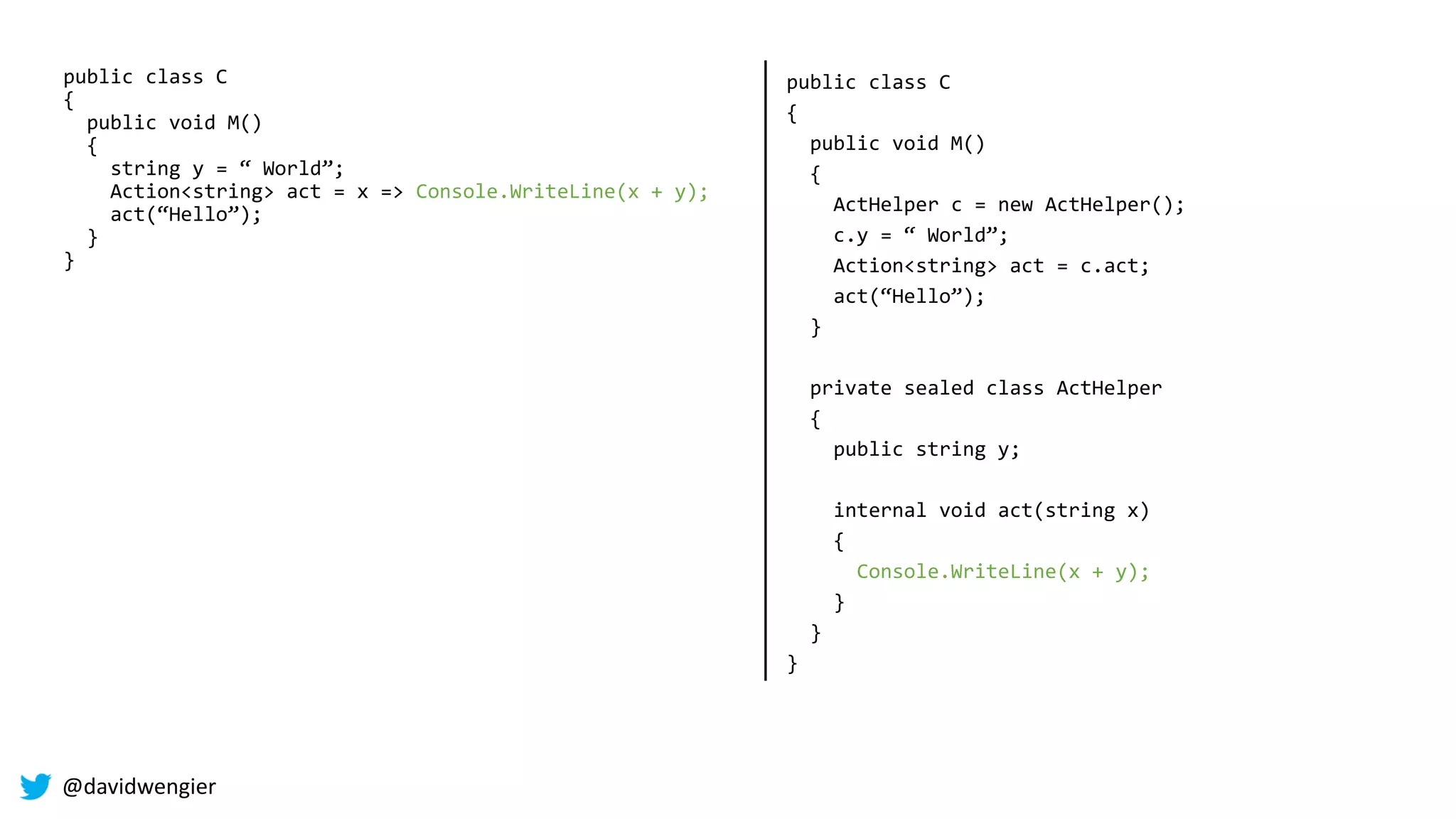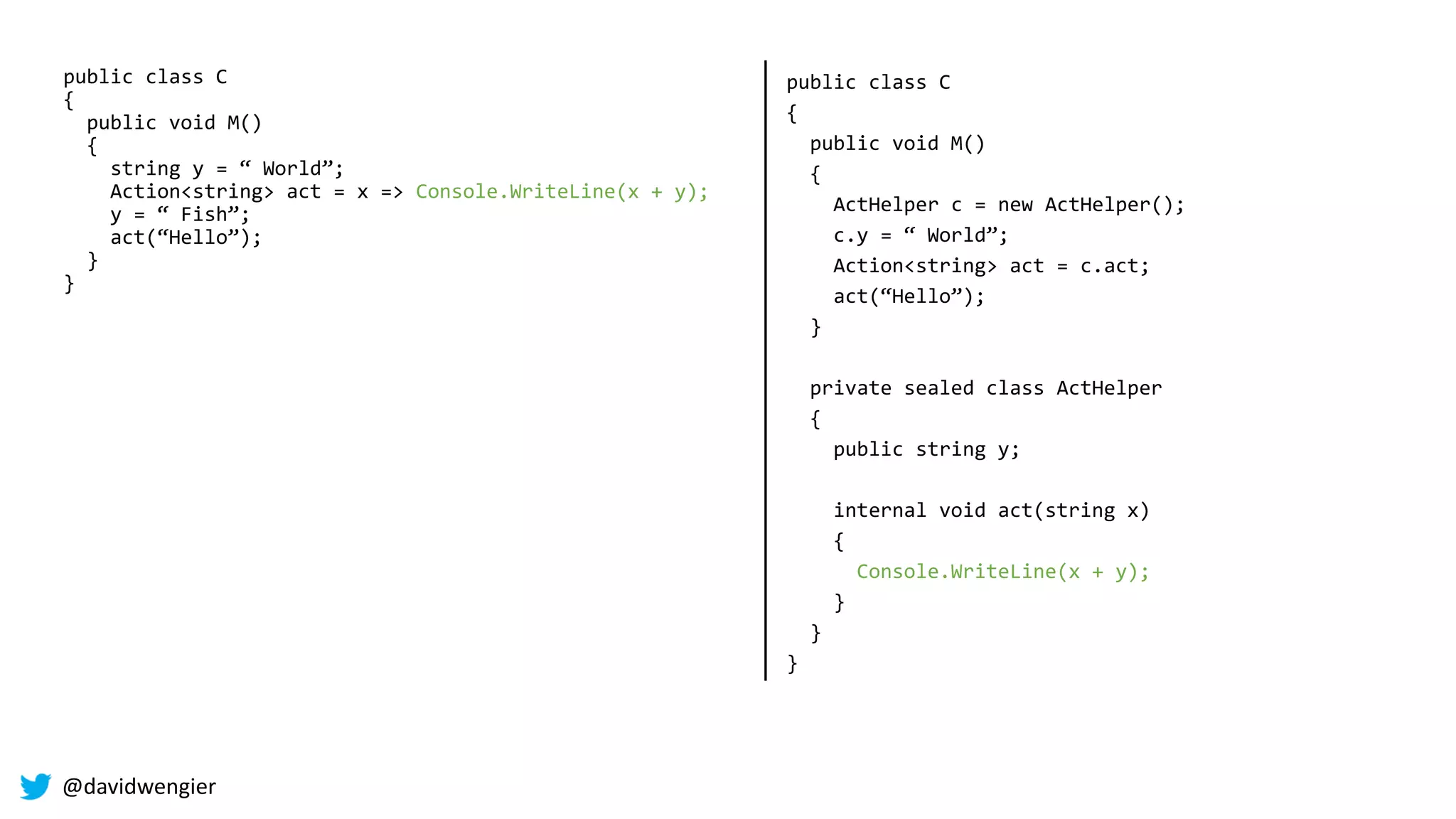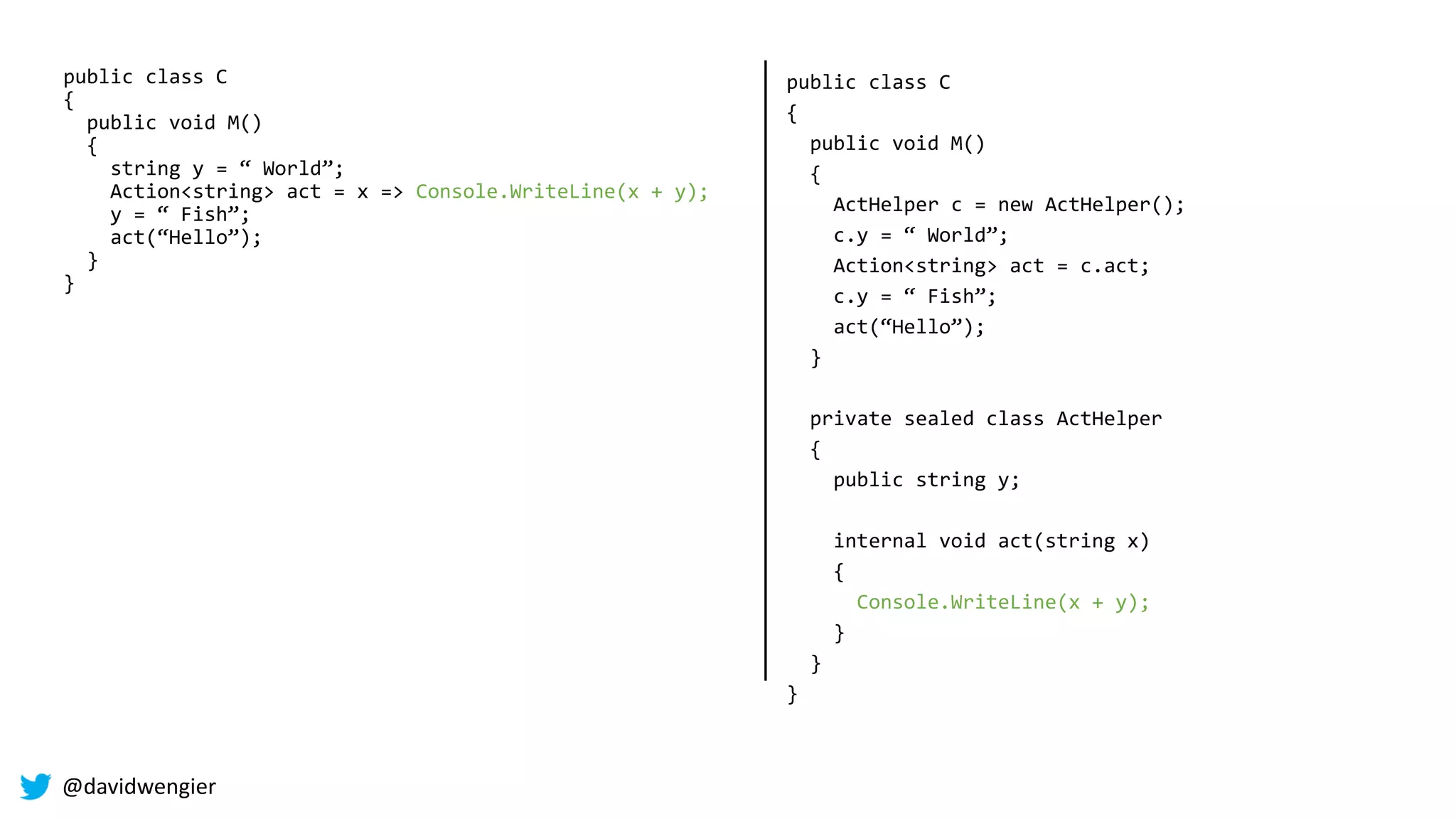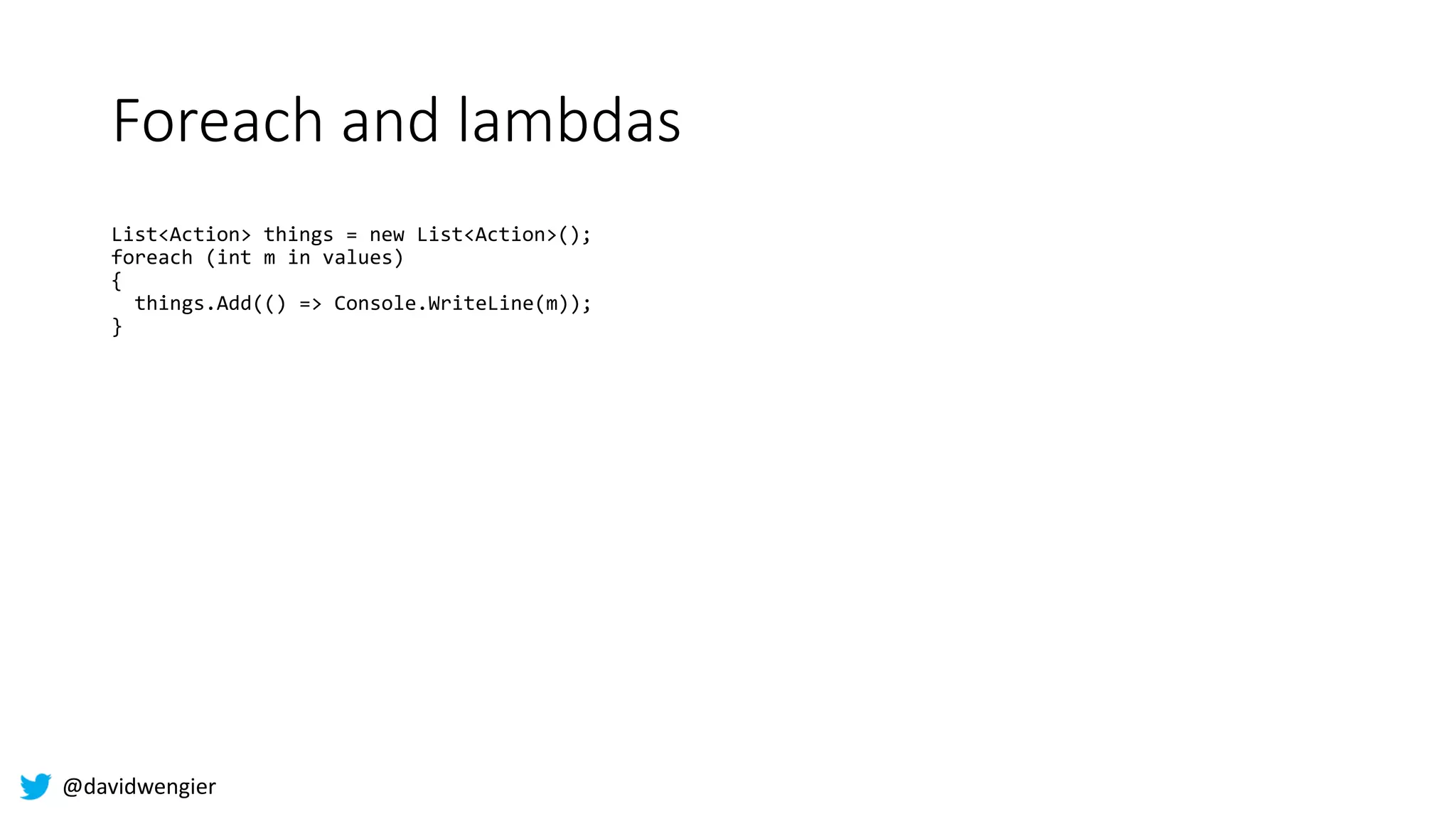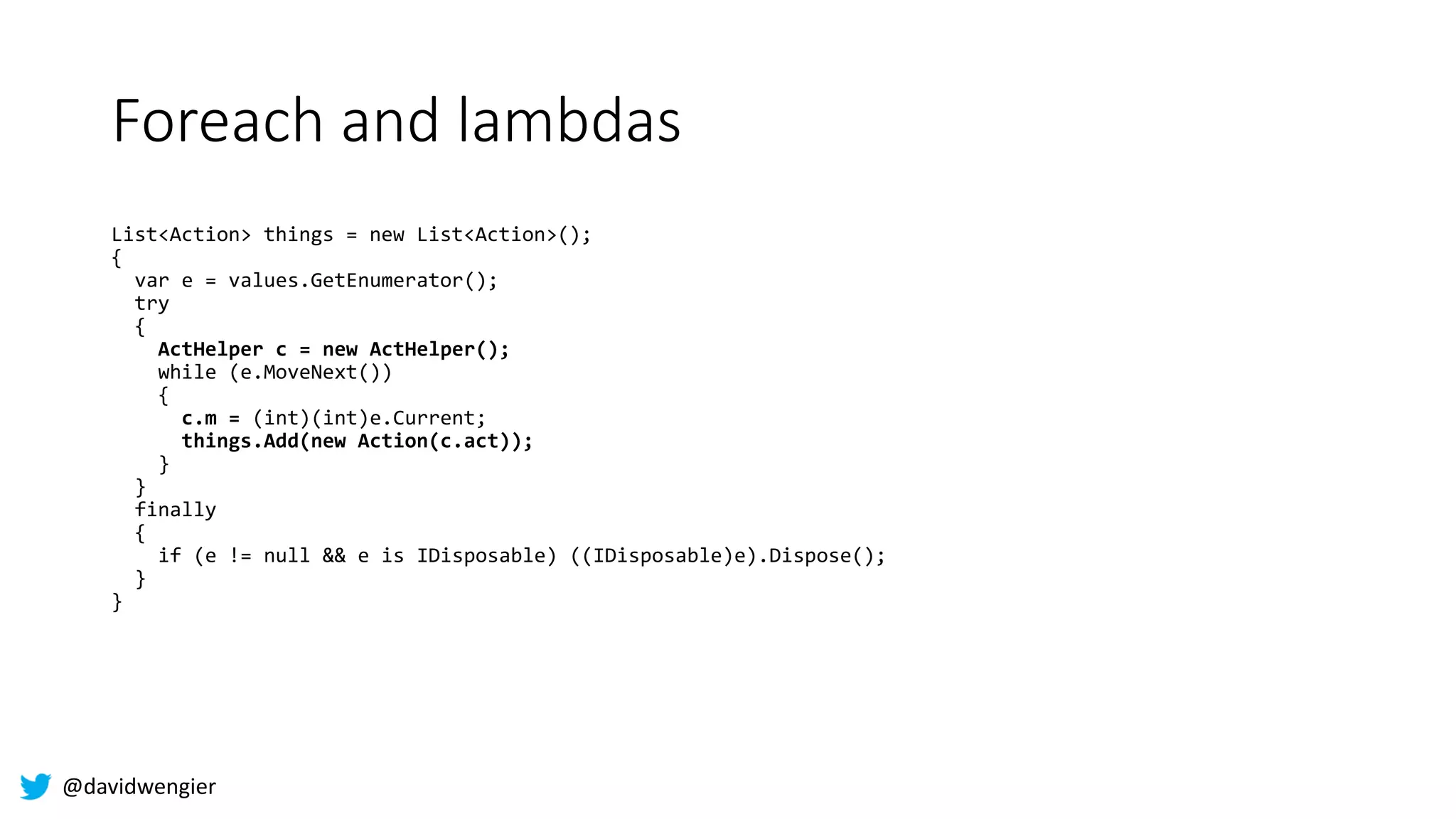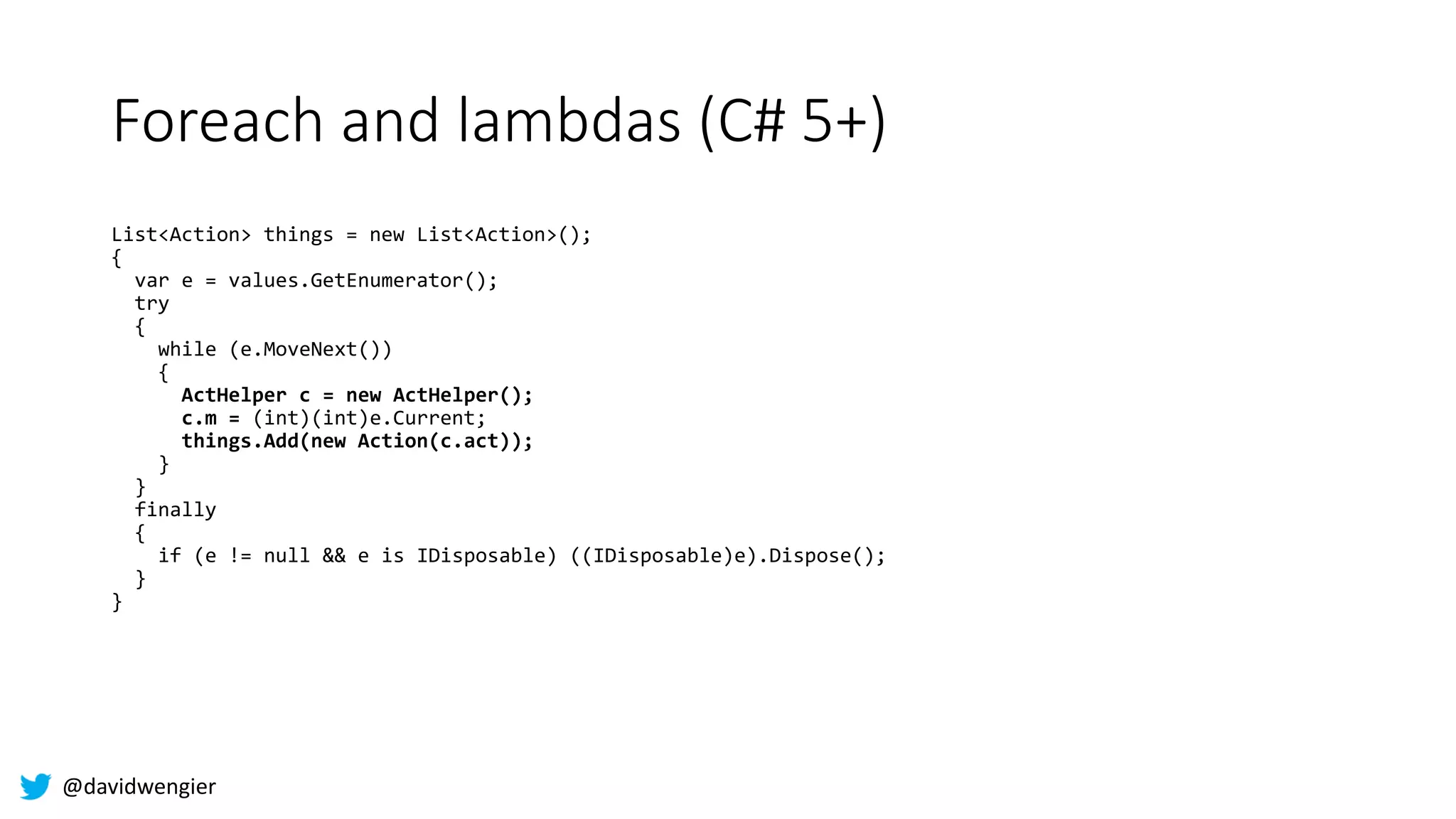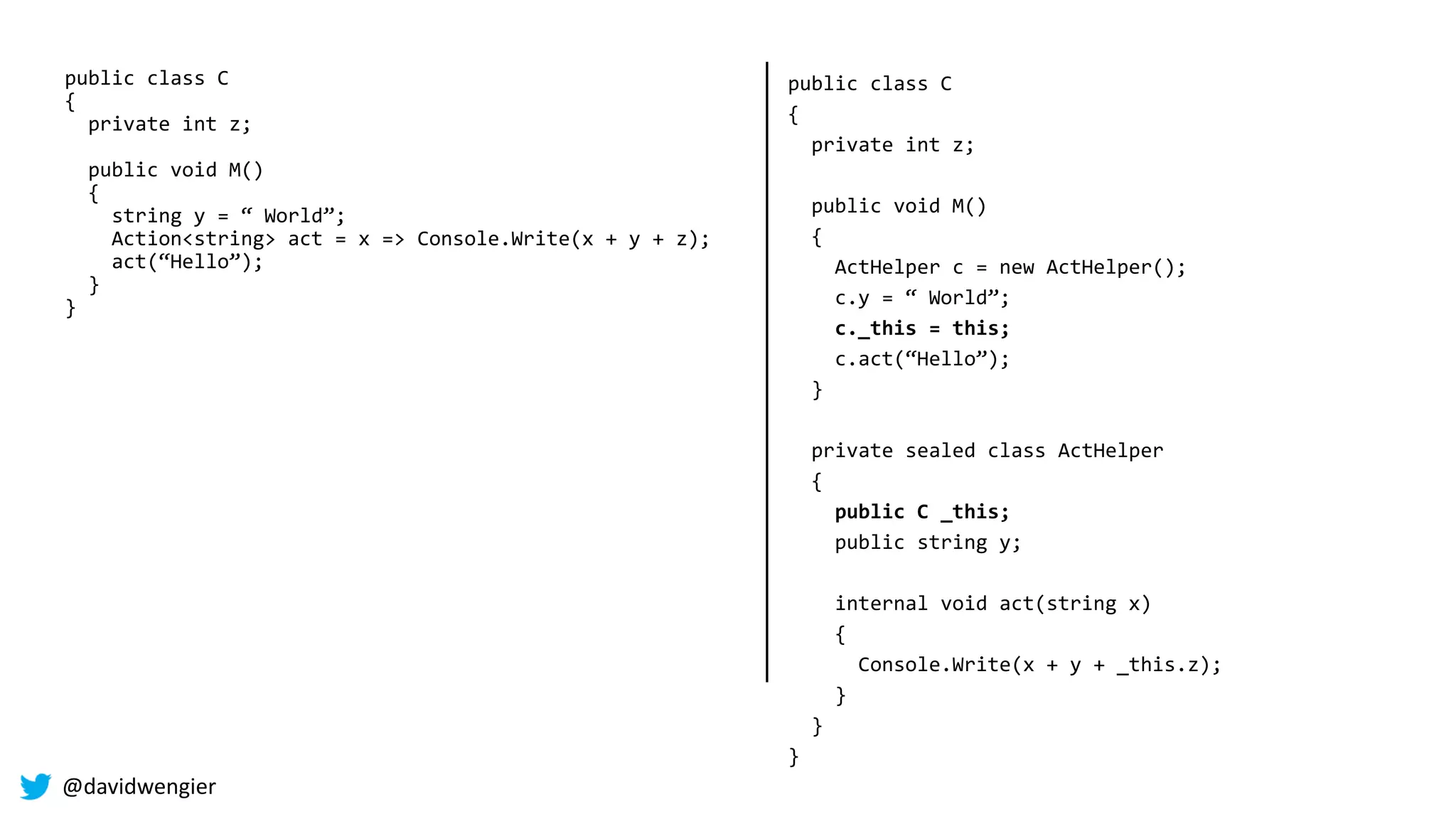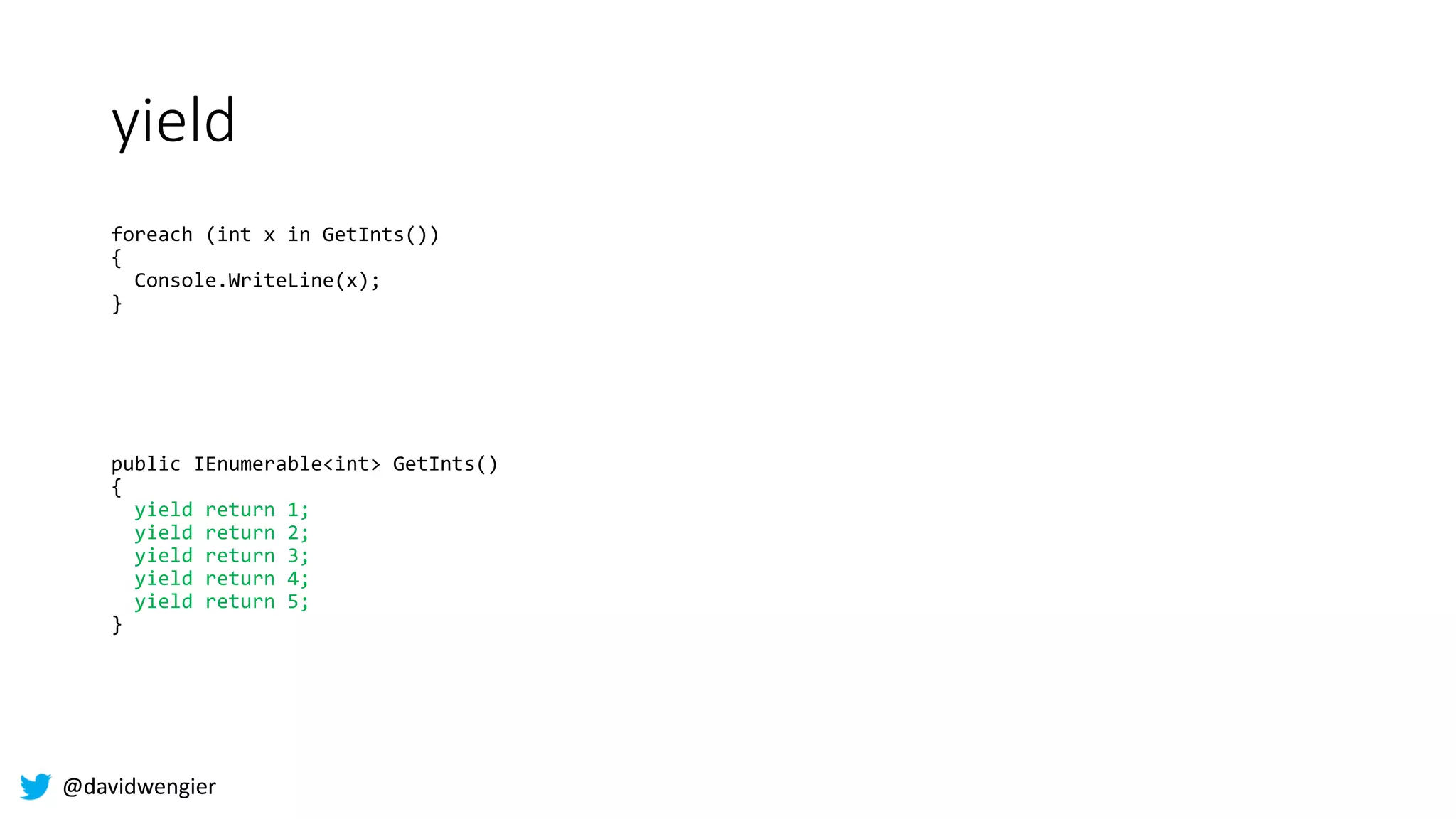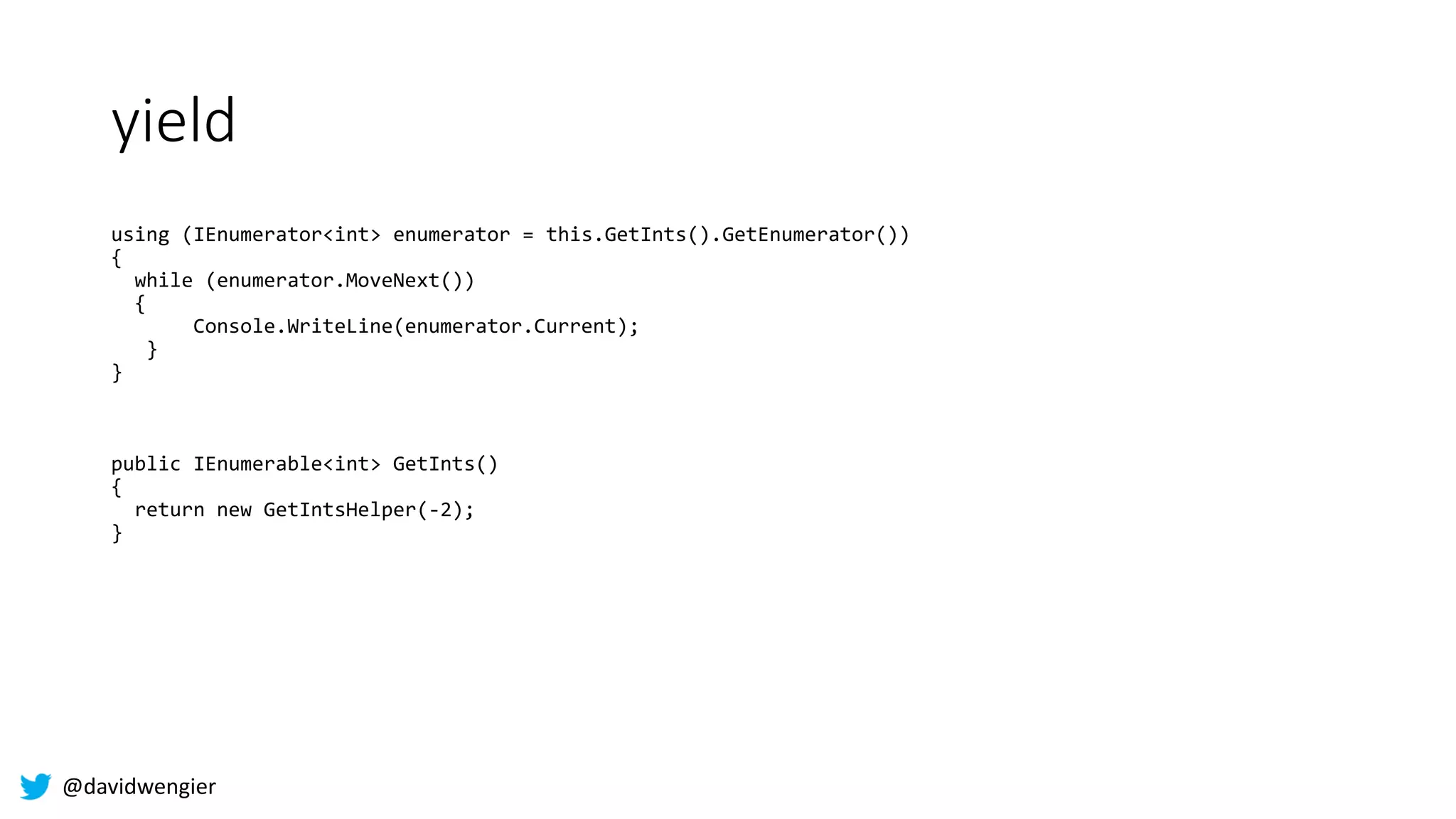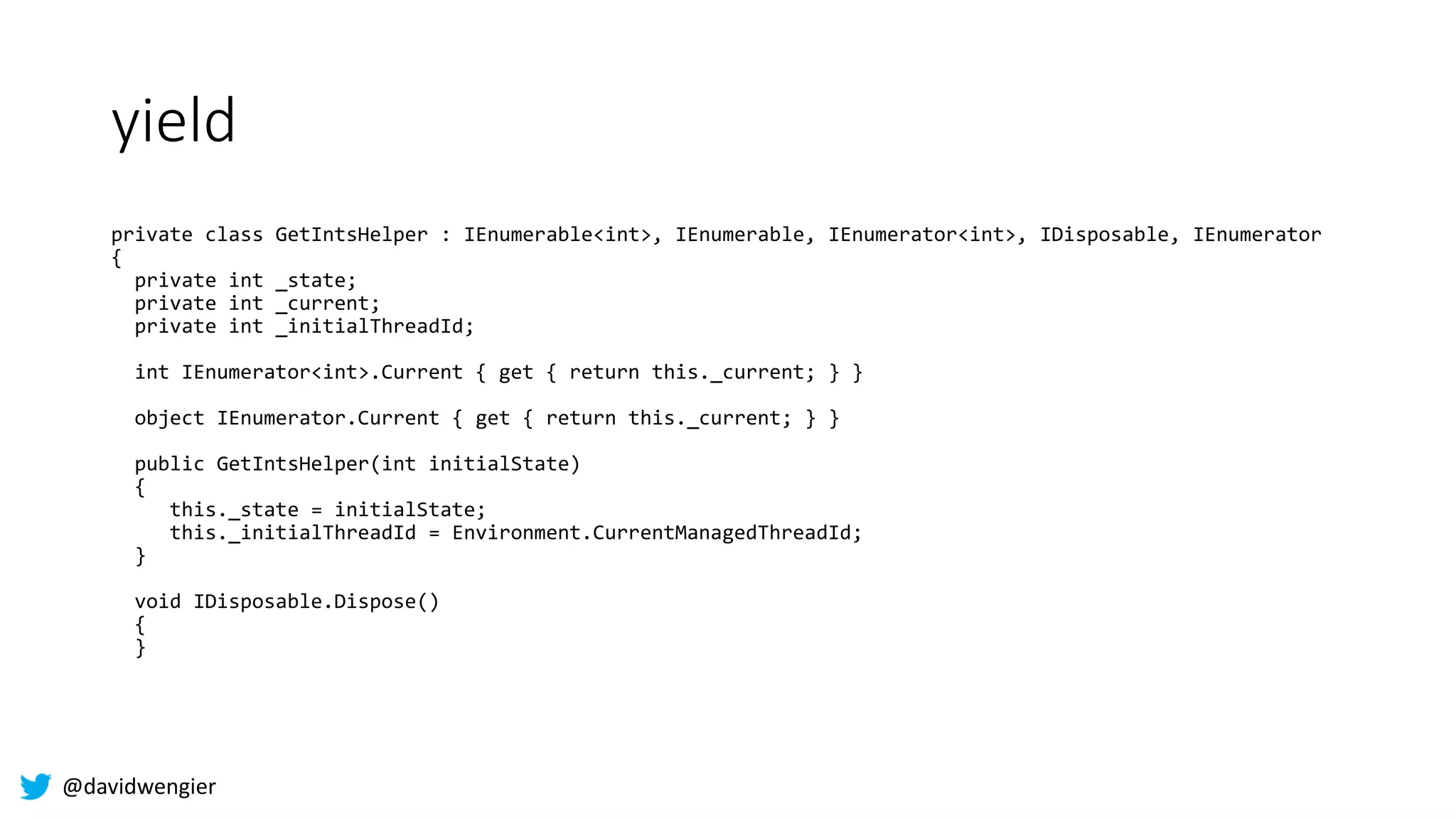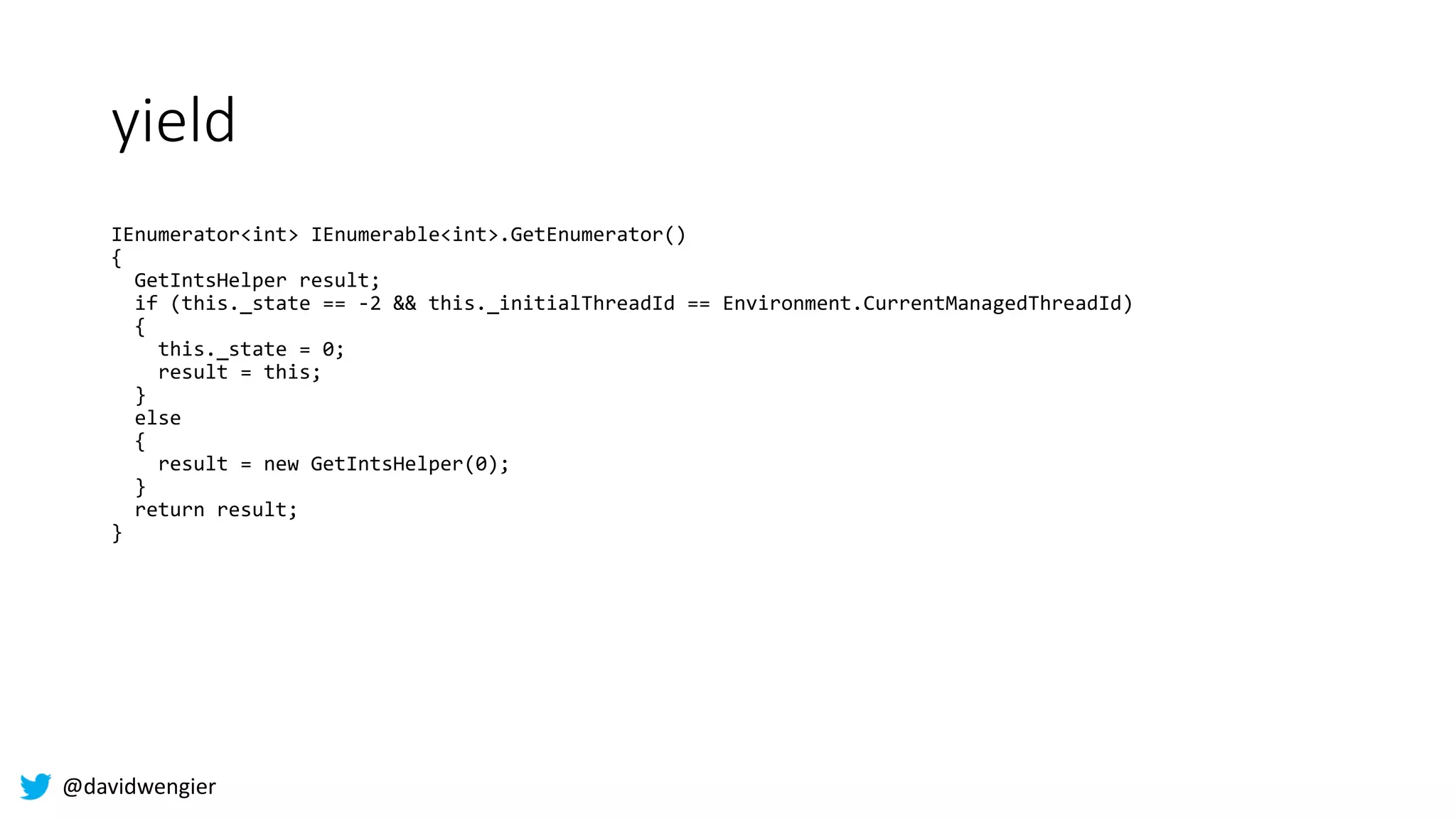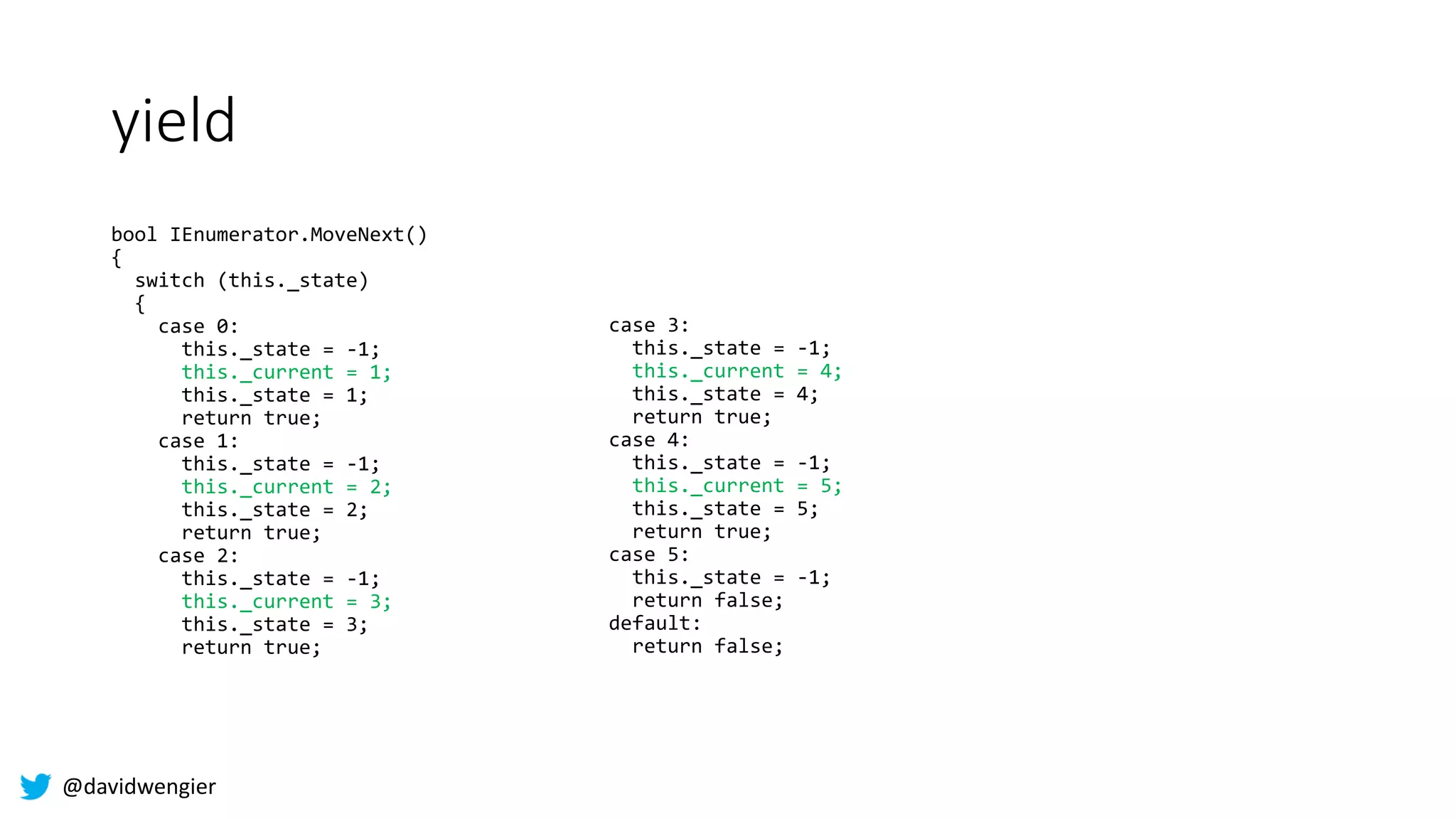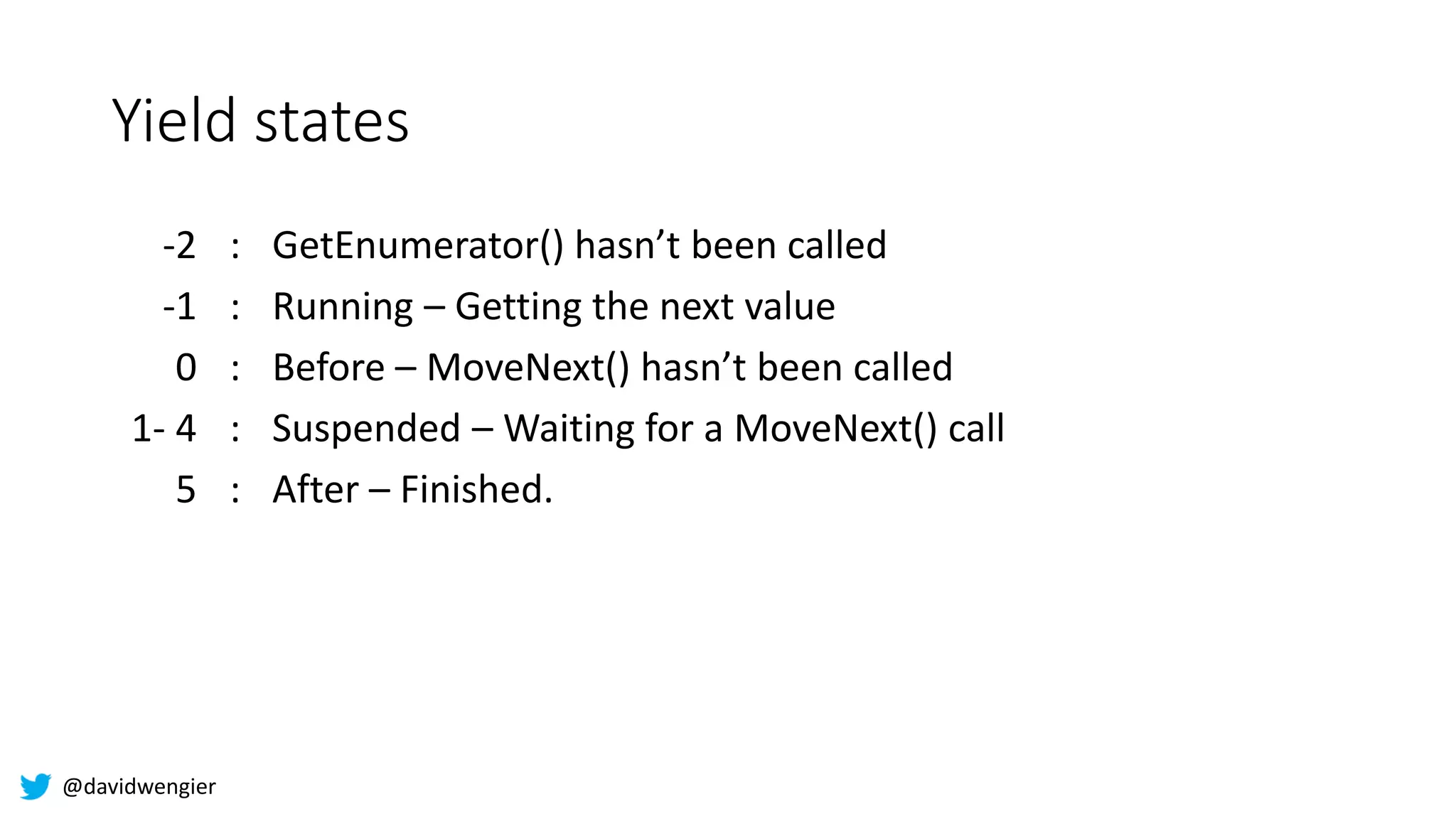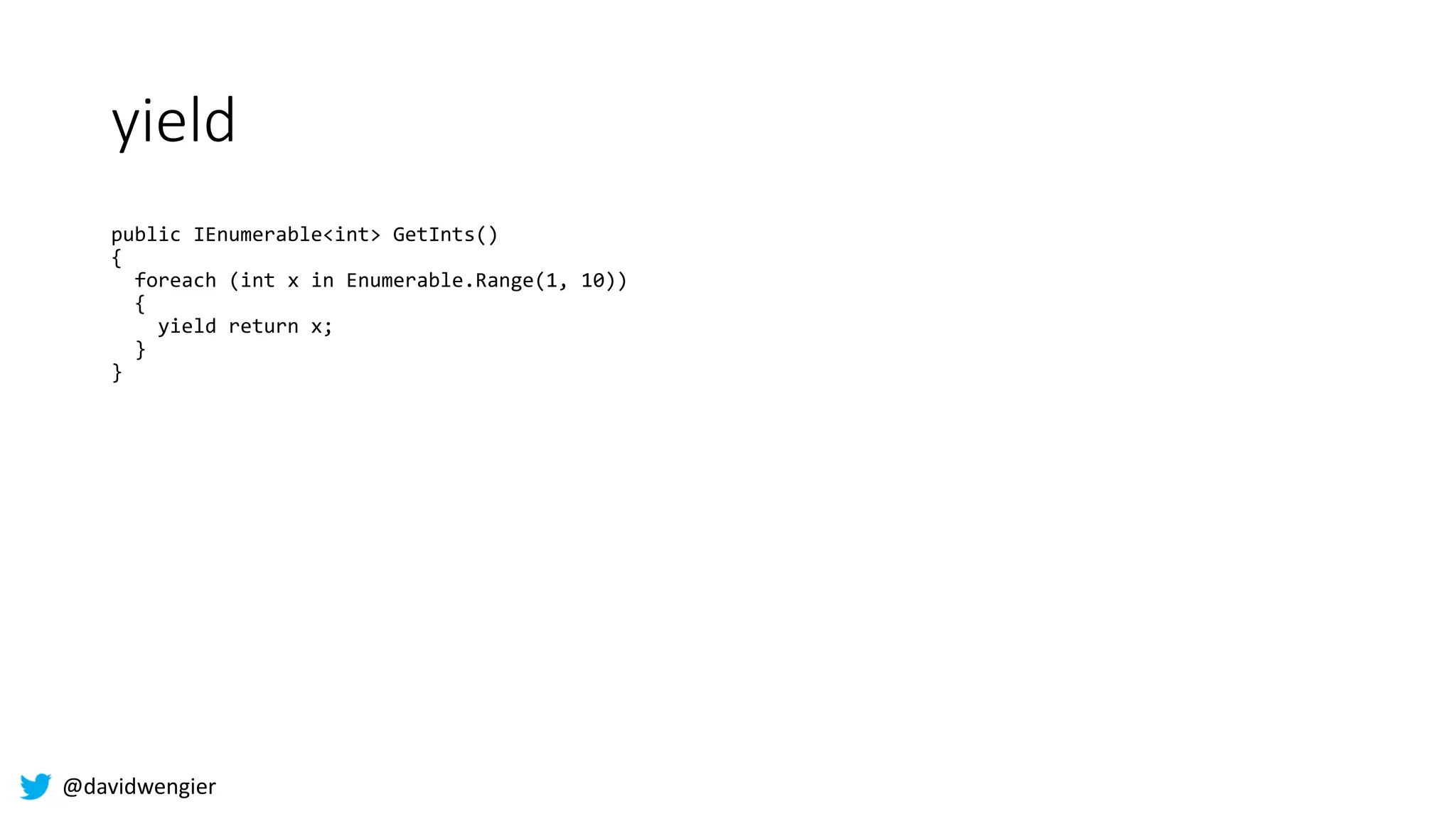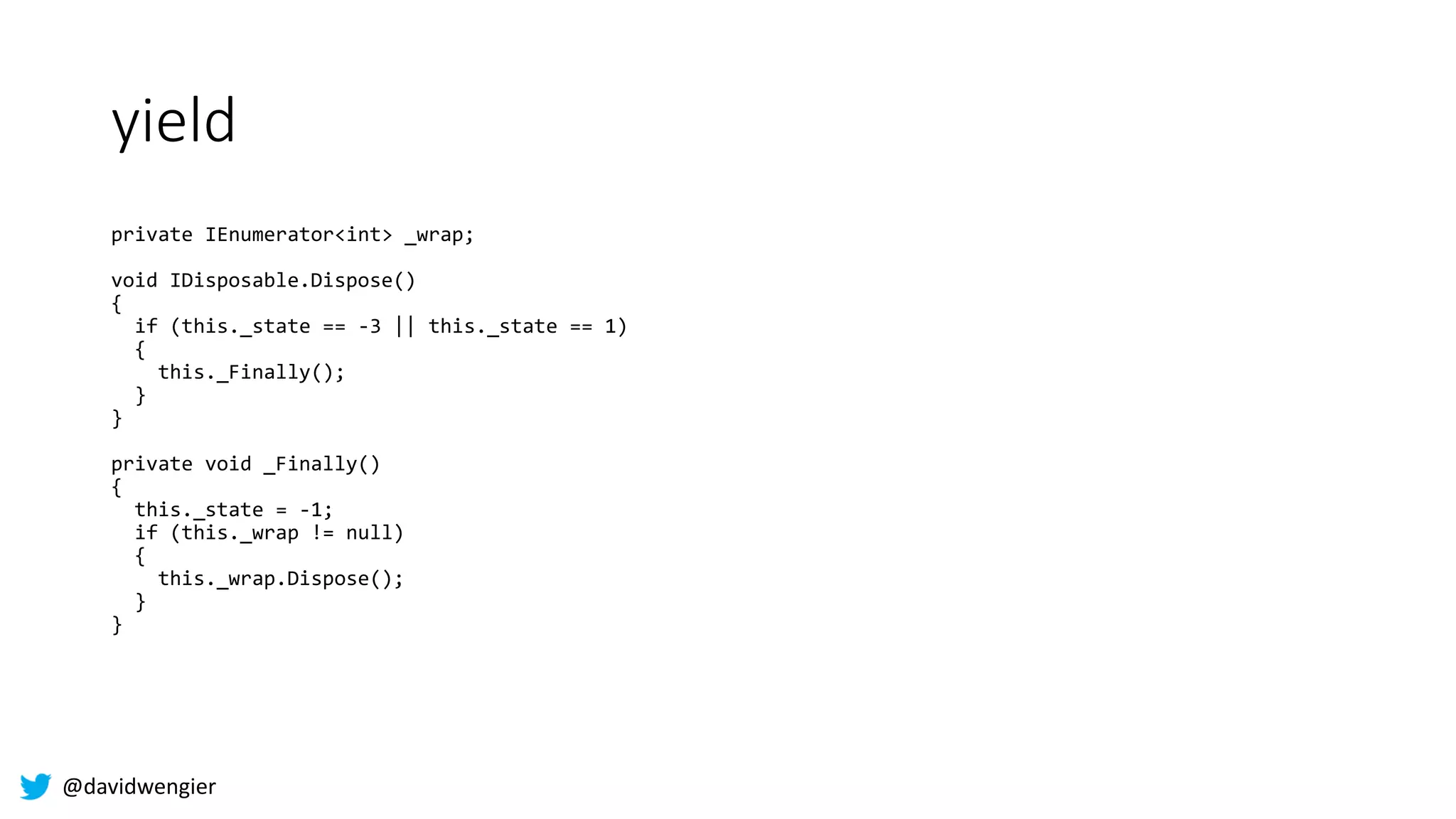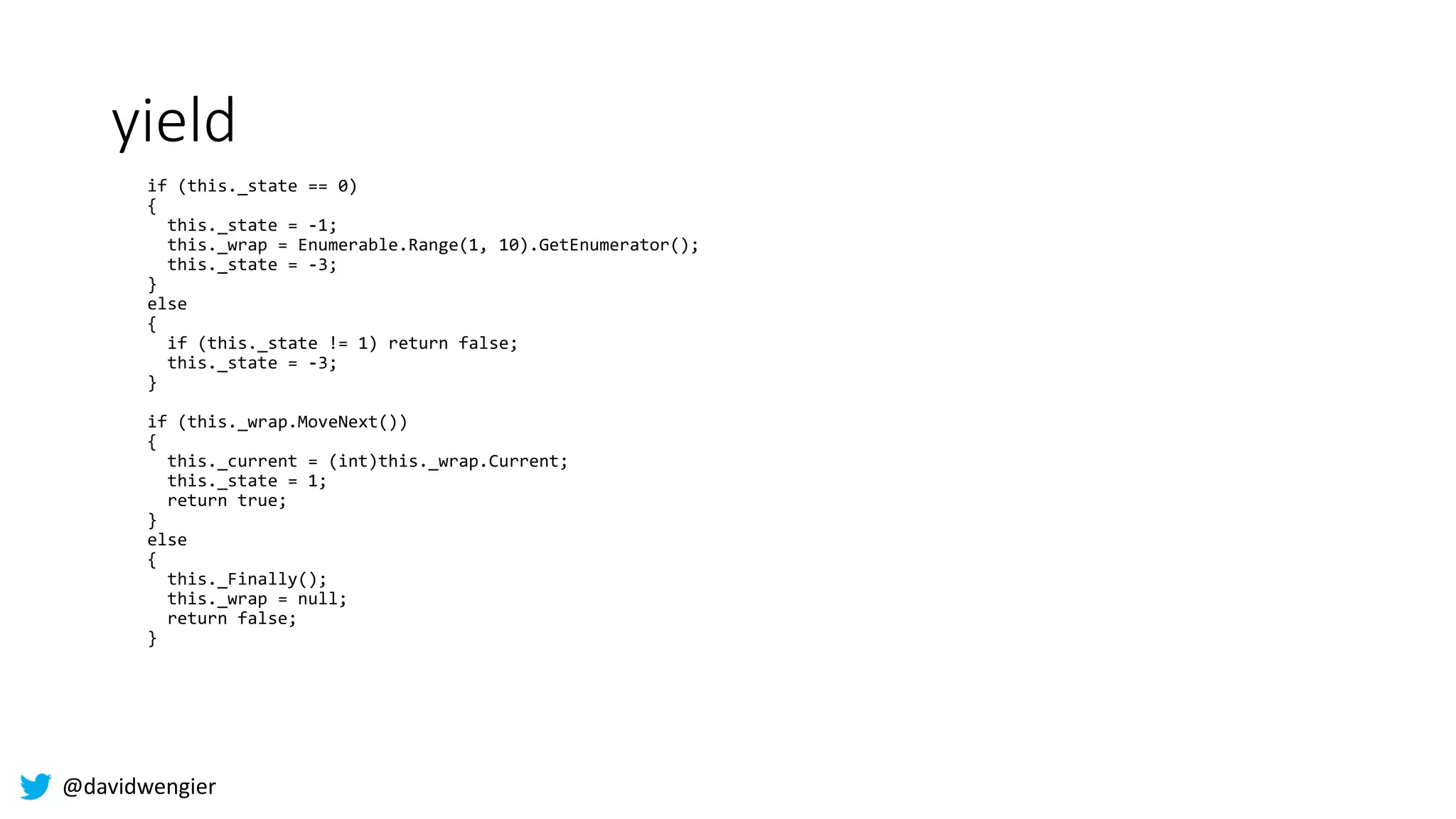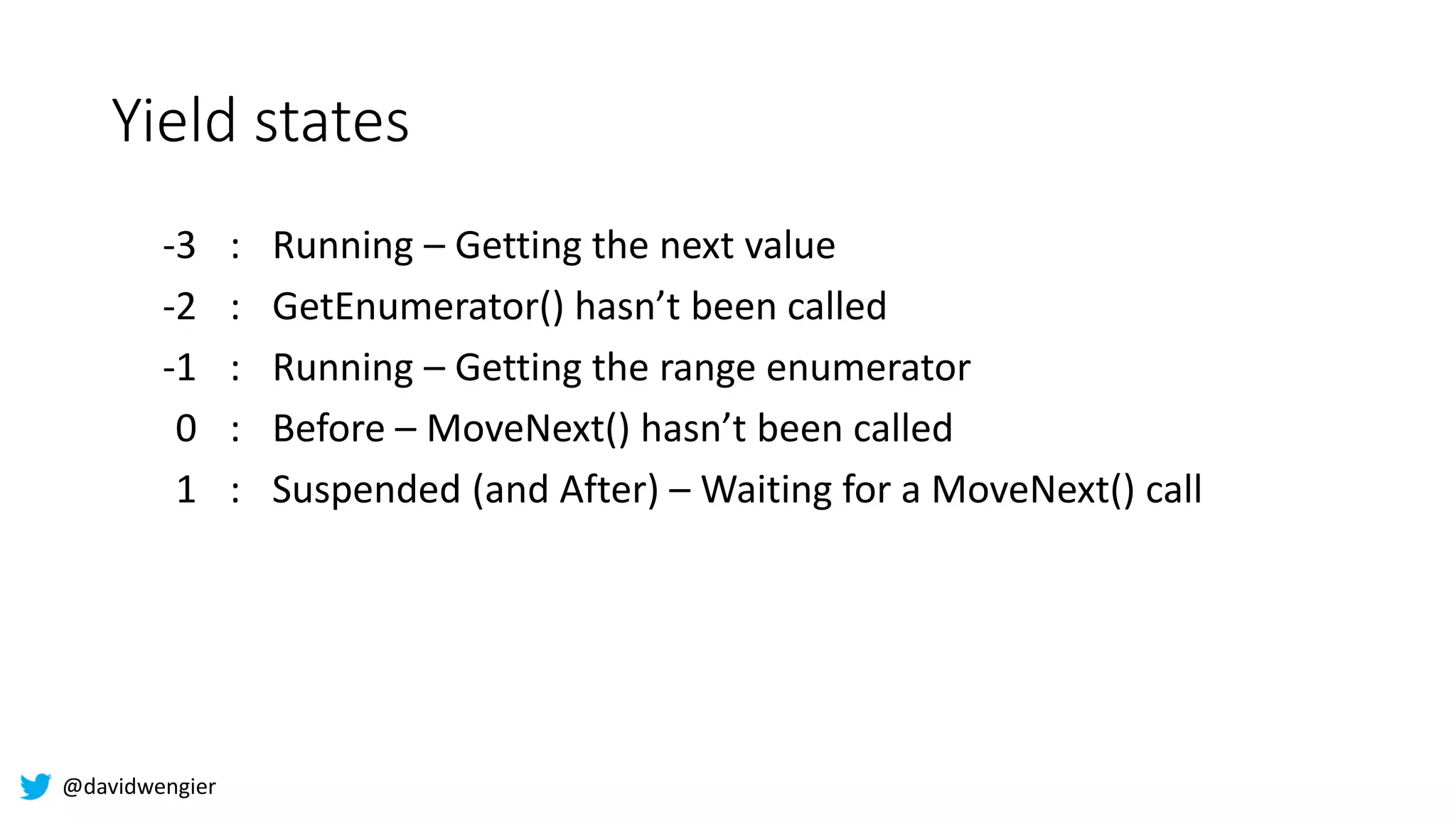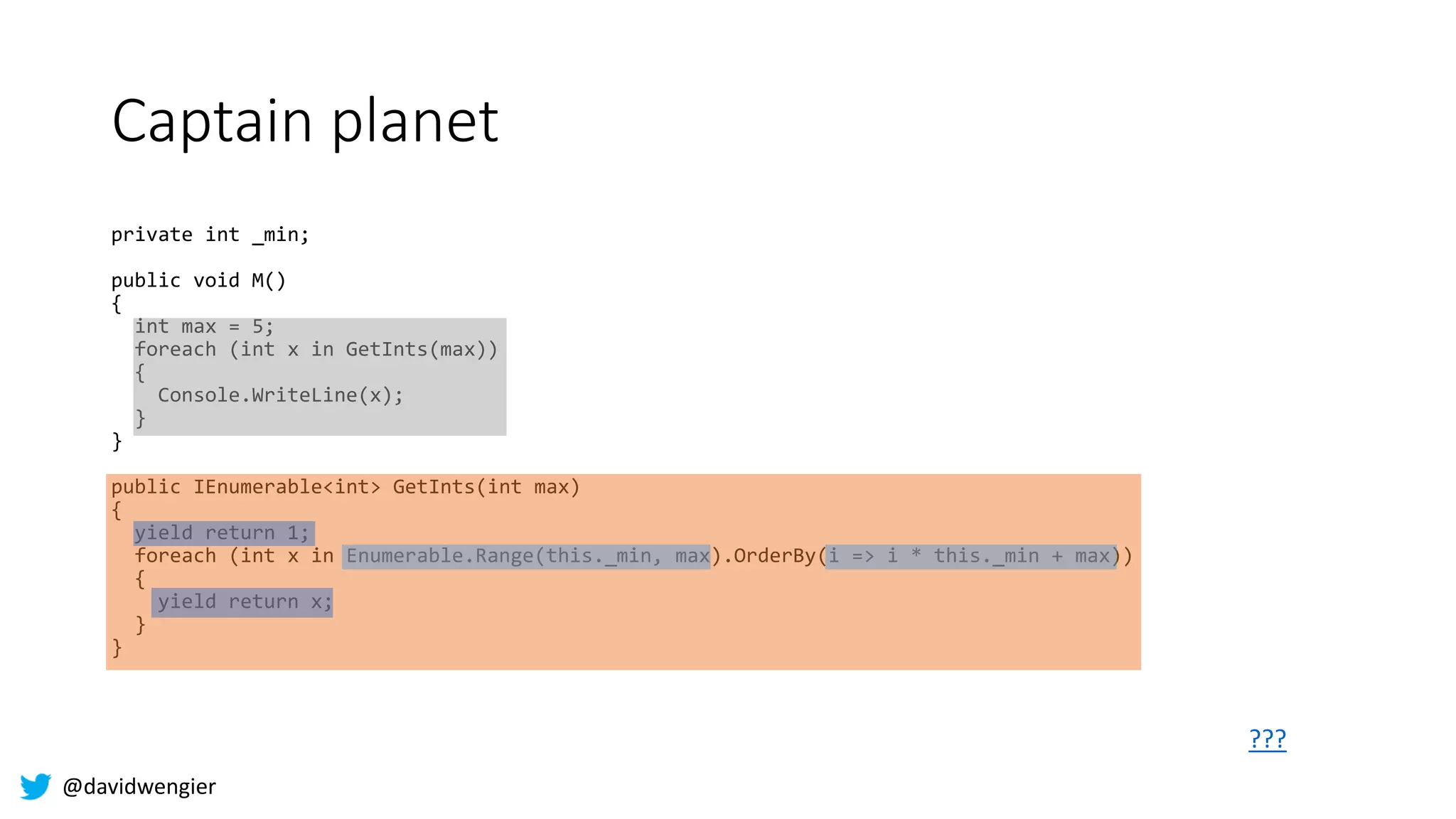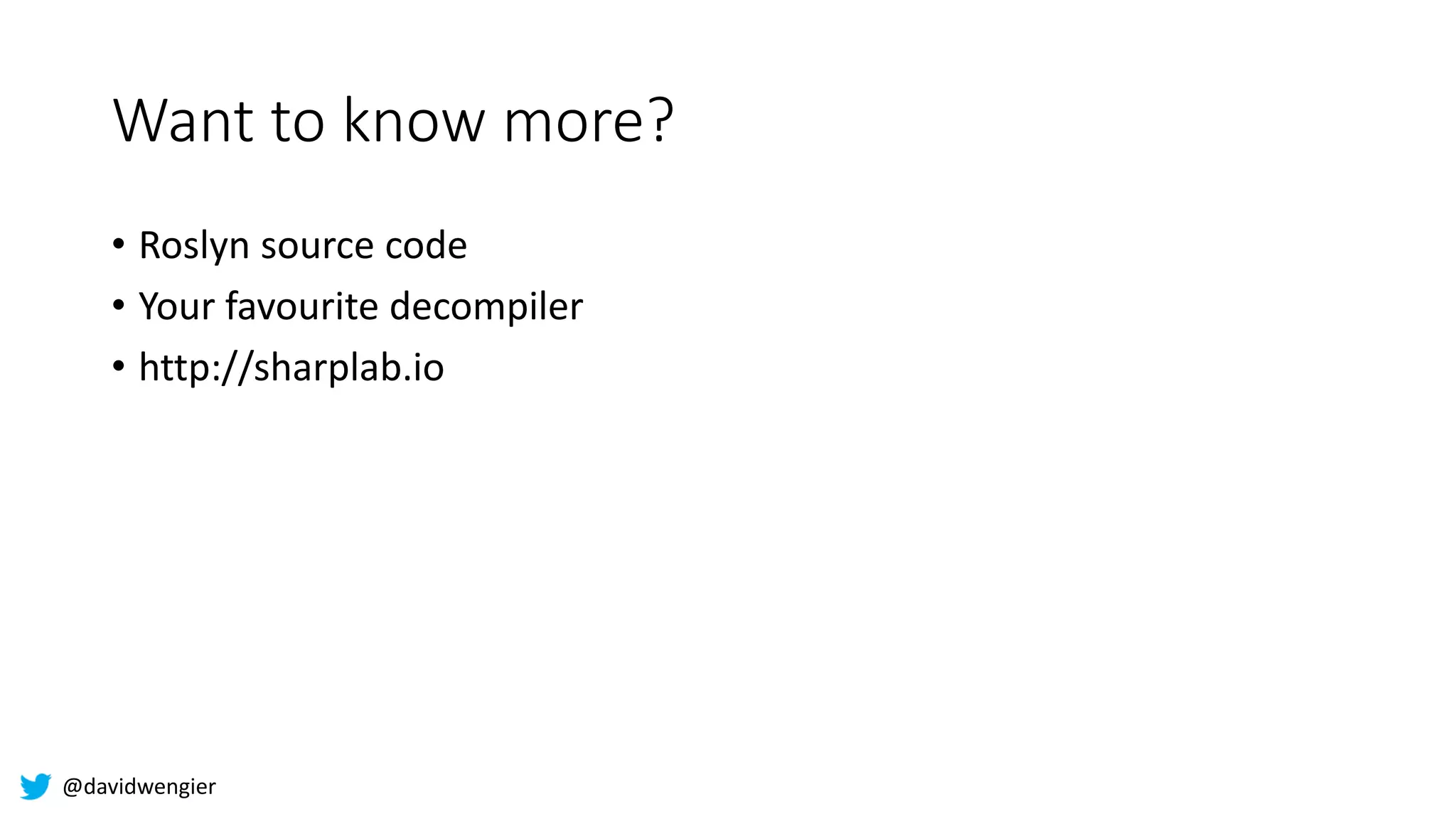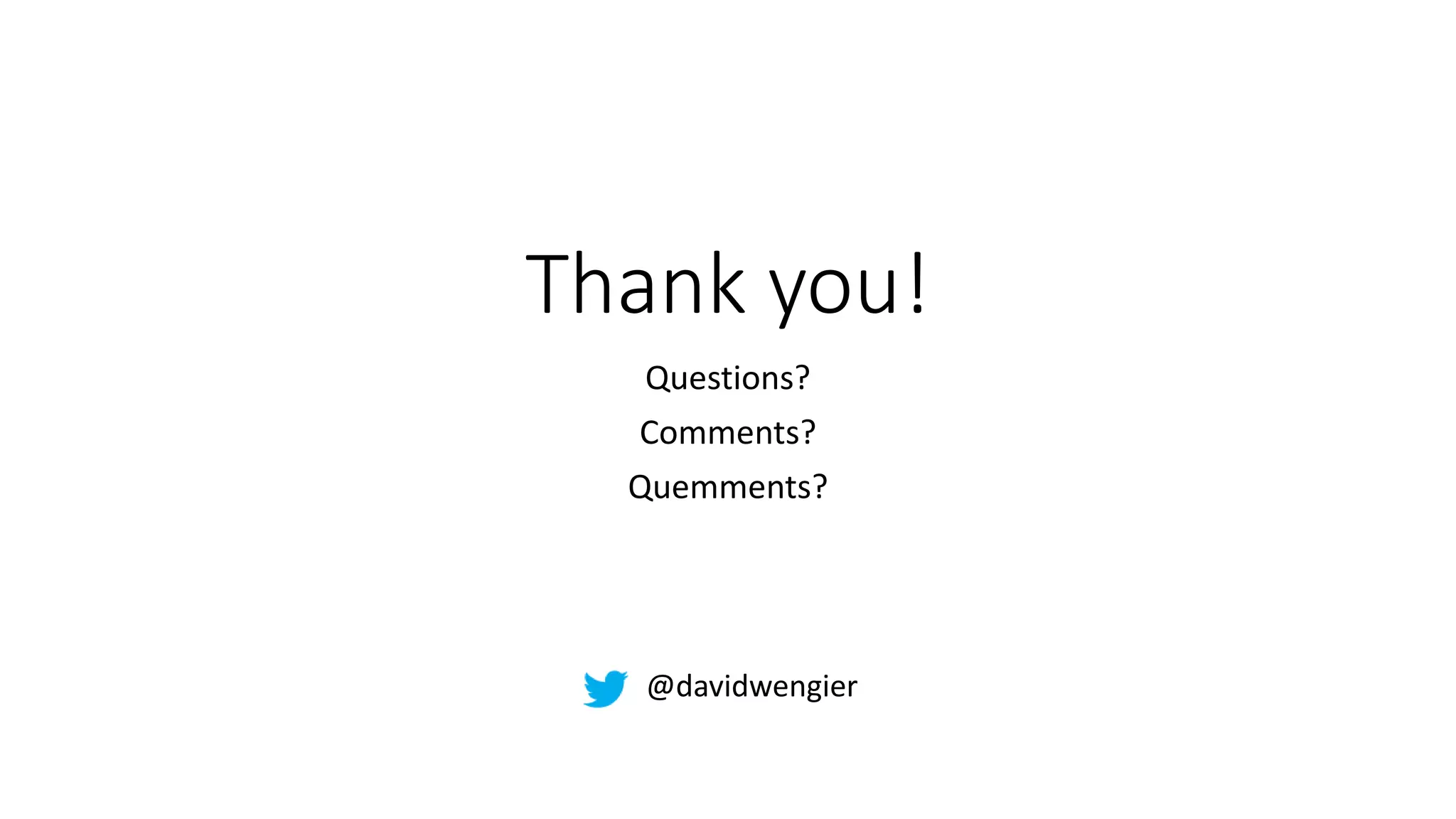The document discusses the concept of 'lowering' in C#, explaining how high-level language constructs are translated into lower-level representations by the compiler. It includes practical examples of various programming constructs such as loops, LINQ queries, lambdas, and the use of yield to create iterators, while emphasizing the underlying mechanics of these features. The author also references resources for further learning and invites questions from the audience.
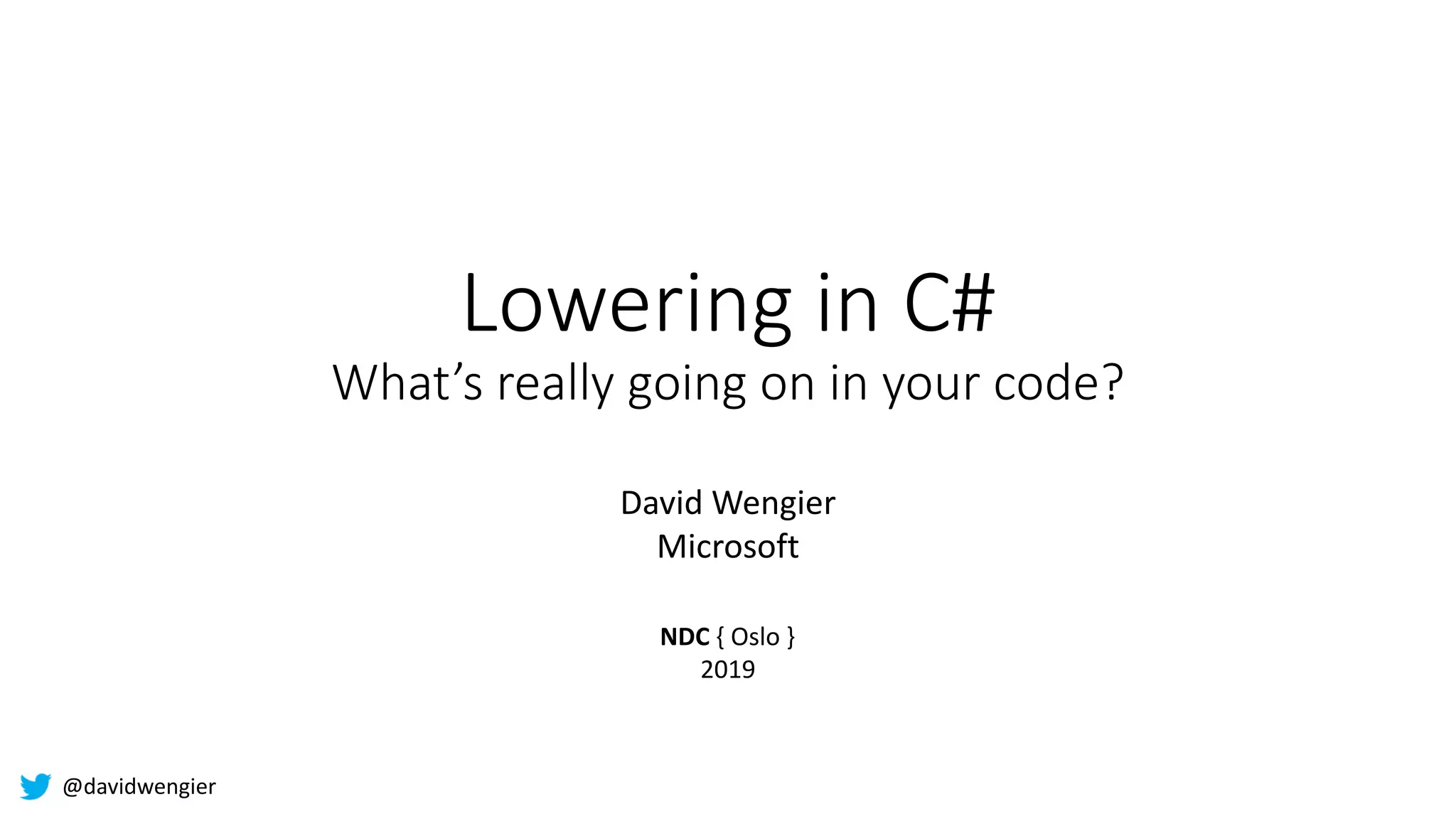
![@davidwengier
foreach (int item in listOfInts)
{
// do something with item
}
for (int i = 0; i < listOfInts.Count; i++)
{
int item = listOfInts[i];
// do something with item
}
int i = 0;
while (i < listOfInts.Count)
{
int item = listOfInts[i];
// do something with item
i++;
}
int i = 0;
again:
int item = listOfInts[i];
// do something with item
i++;
if (i < listOfInts.Count)
{
goto again;
}
IL_0024: ldloc.0
IL_0025: ldloc.1
IL_0026: callvirt instance !0 class
[mscorlib]List`1<int32>::get_Item(int32)
IL_002b: pop
IL_002c: ldloc.1
IL_002d: ldc.i4.1
IL_002e: add
IL_002f: stloc.1
IL_0030: ldloc.1
IL_0031: ldloc.0
IL_0032: callvirt instance int32 class
[mscorlib]List`1<int32>::get_Count()
IL_0037: blt.s IL_0024
What is lowering?
IL
foreach
for
while
gotogoto
while
for
foreach](https://image.slidesharecdn.com/lowering-190621125451/75/Lowering-in-C-What-really-happens-with-your-code-from-NDC-Oslo-2019-2-2048.jpg)
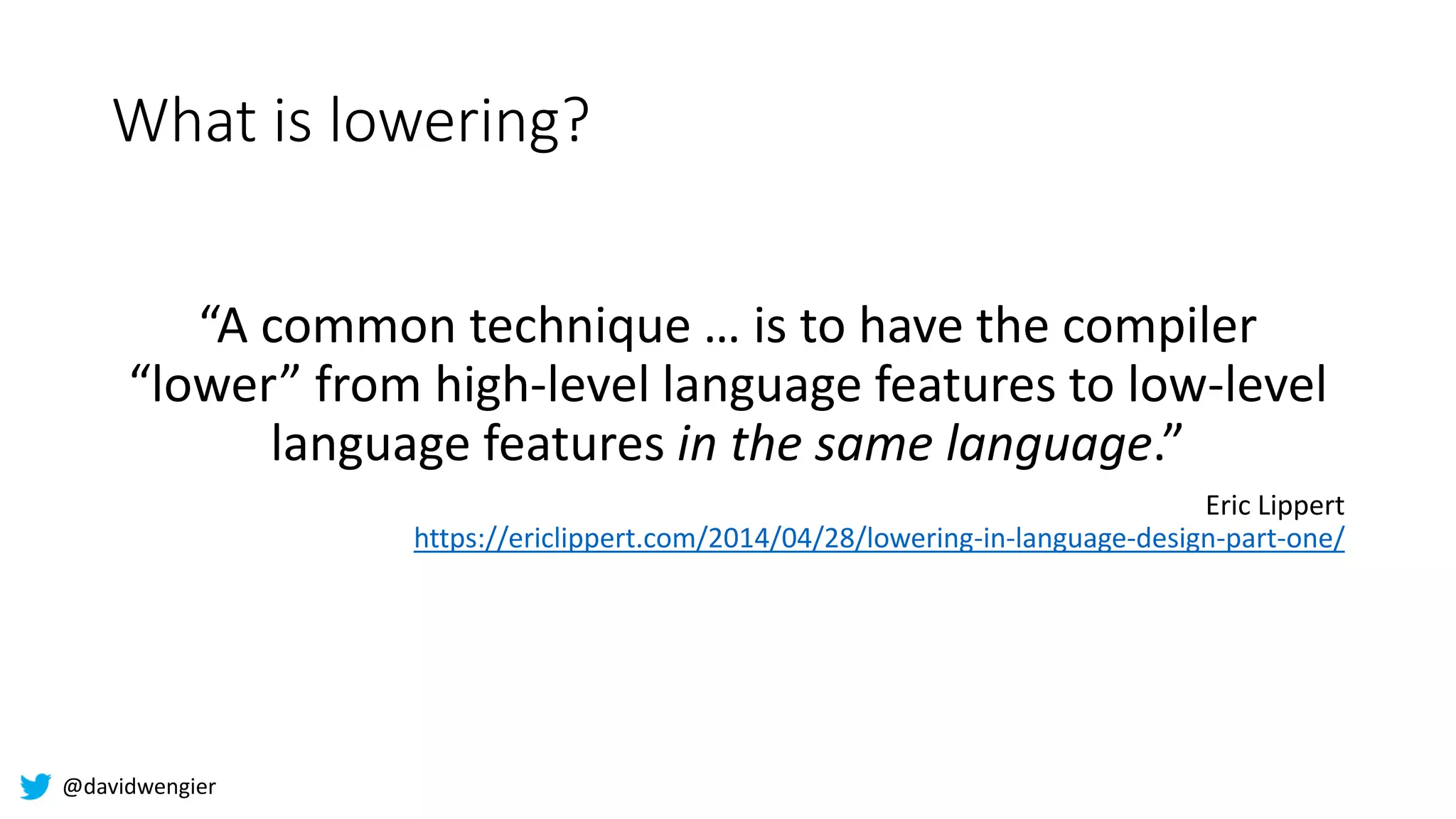

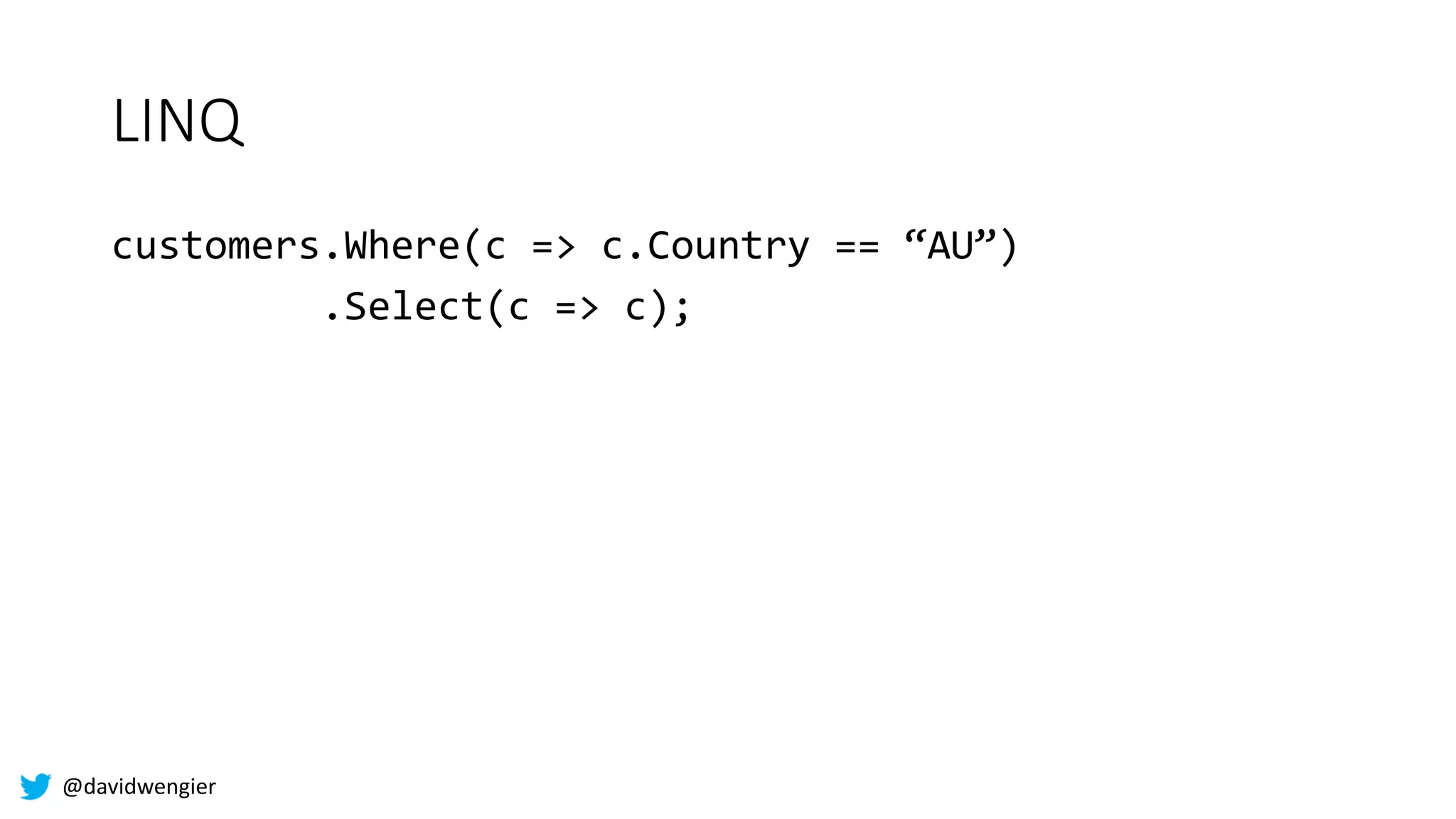
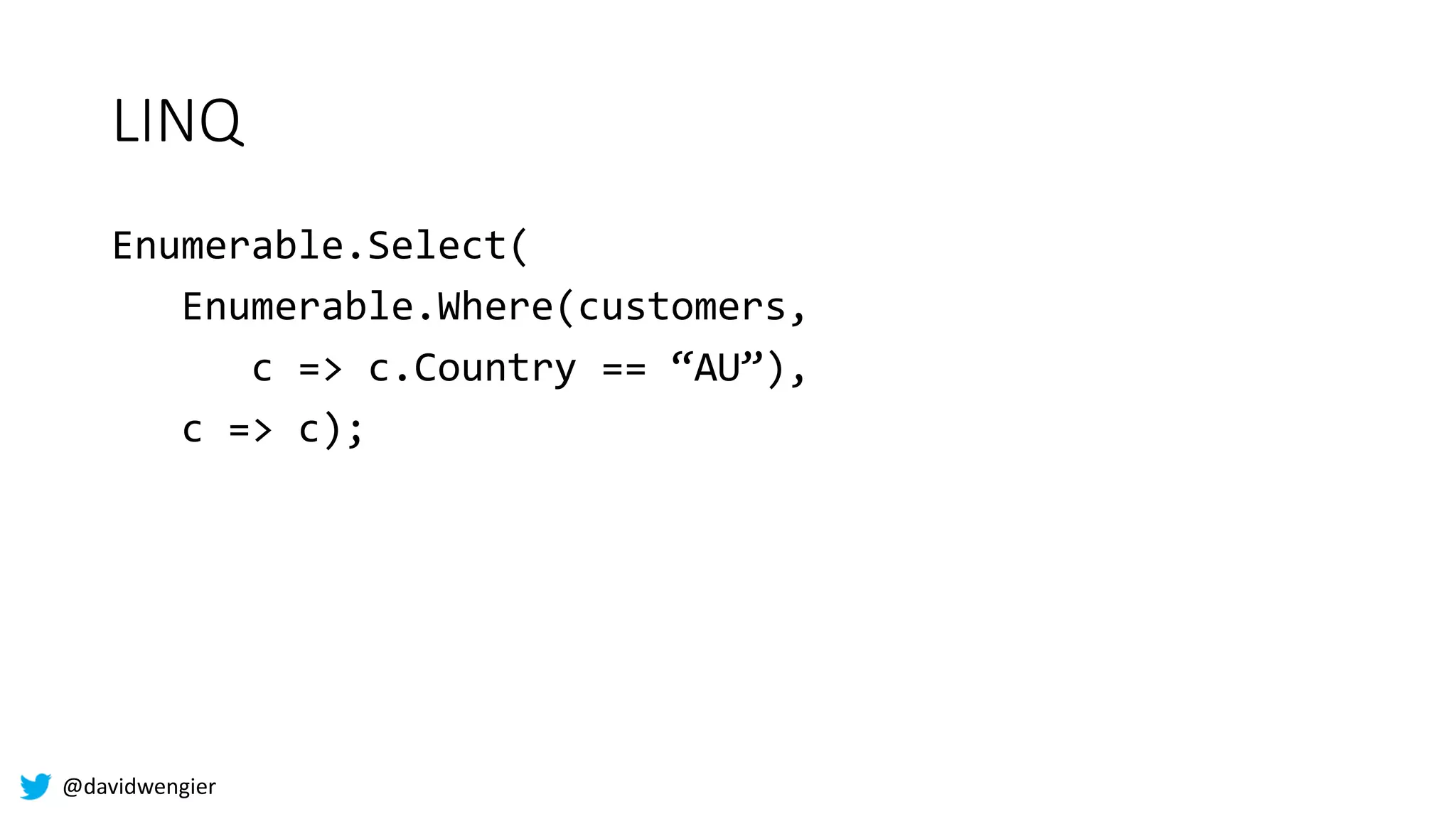
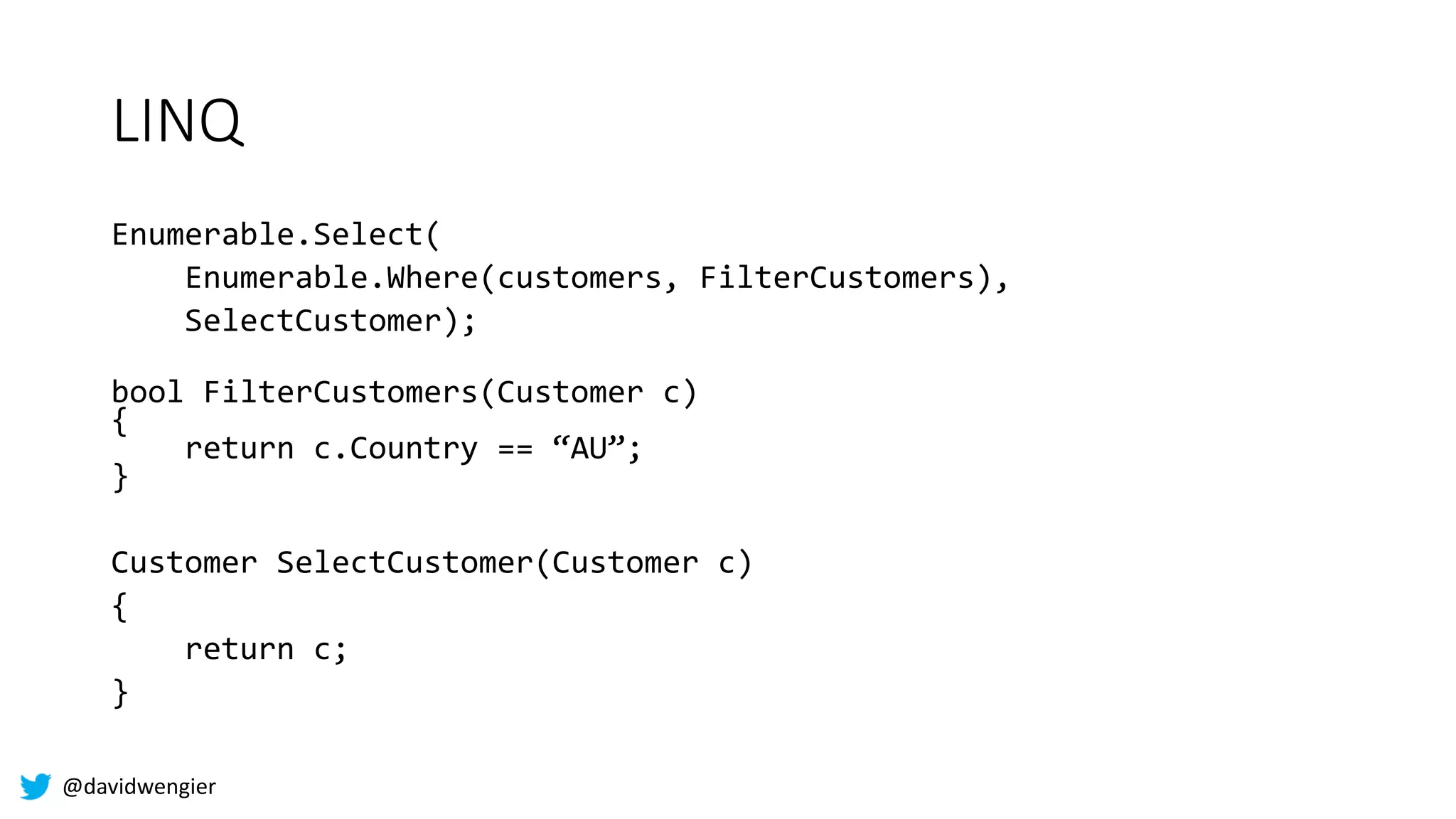
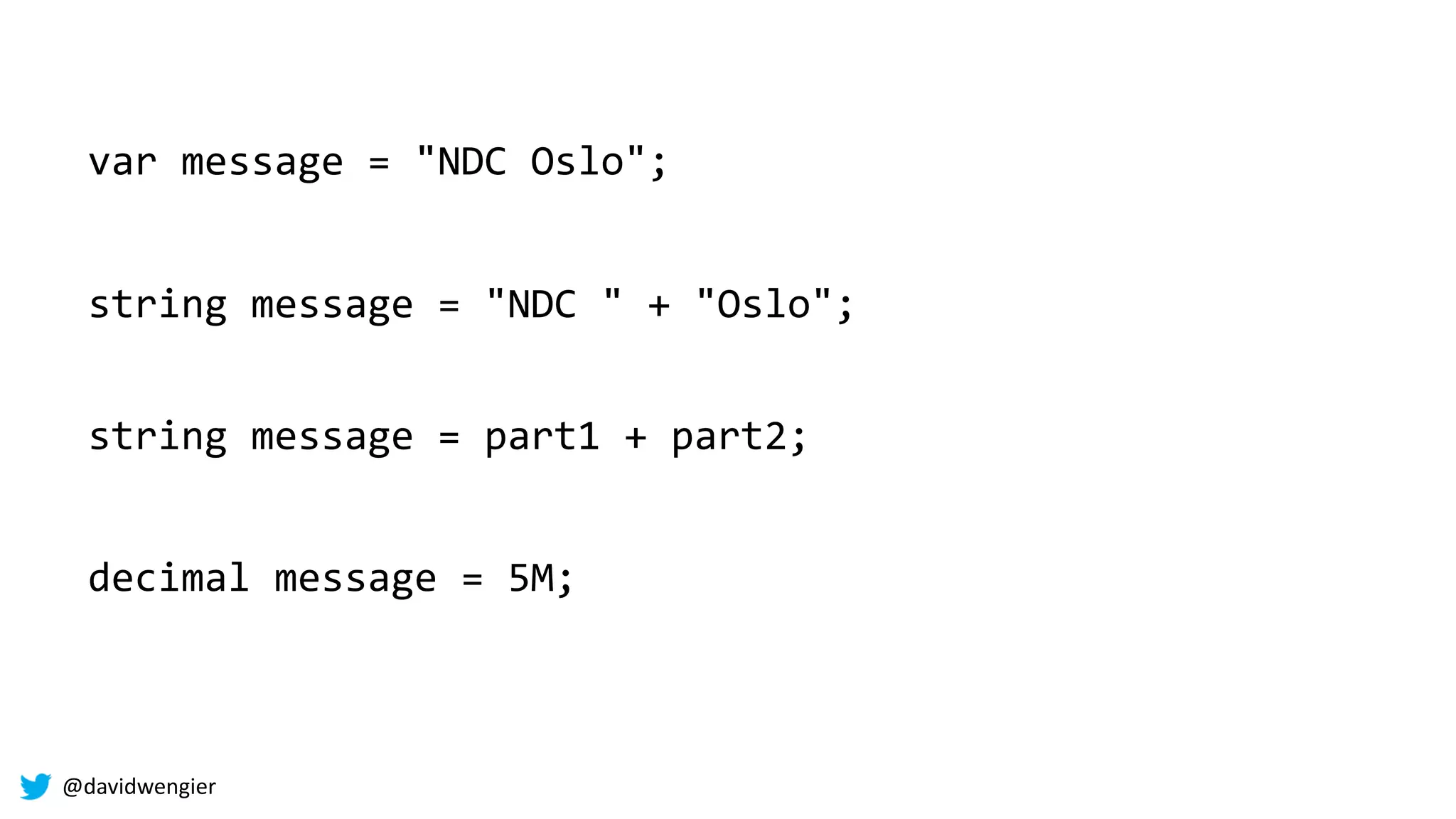
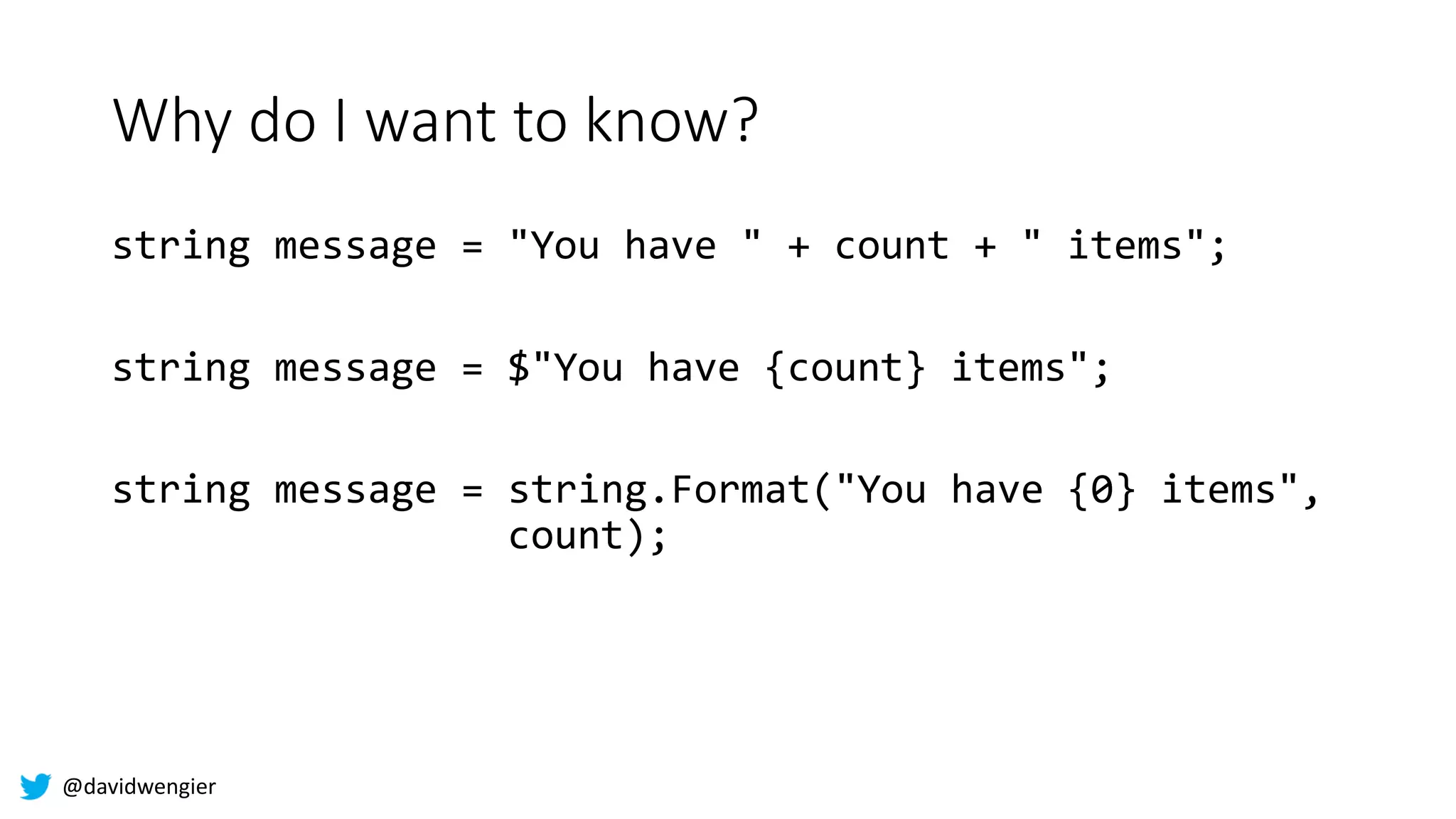

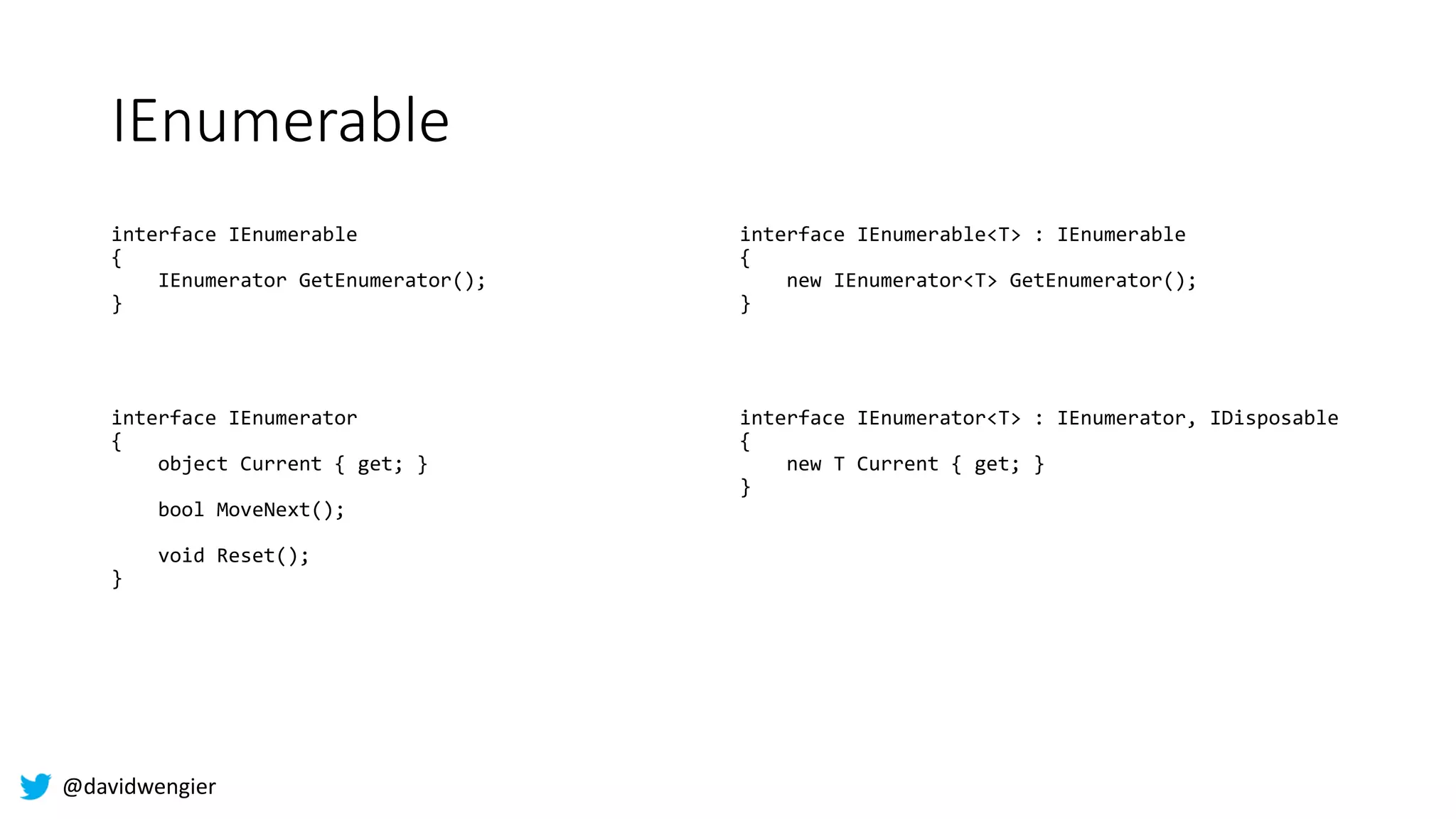
![@davidwengier
foreach
{
var e = values.GetEnumerator();
try
{
int m;
while (e.MoveNext())
{
m = (int)(int)e.Current;
Console.WriteLine(m);
}
}
finally
{
if (e != null && e is IDisposable)
{
((IDisposable)e).Dispose();
}
}
}
object[] v = new [] { 1, 2 };
Write(v);
void Write(object[] arr)
{
foreach (int s in arr)
{
Console.WriteLine(s);
}
}
Person[] v = new [] { Empl(),..};
Write(v);
void Write(Person[] arr)
{
foreach (Customer c in arr)
{
Handle(c);
}
}](https://image.slidesharecdn.com/lowering-190621125451/75/Lowering-in-C-What-really-happens-with-your-code-from-NDC-Oslo-2019-12-2048.jpg)
